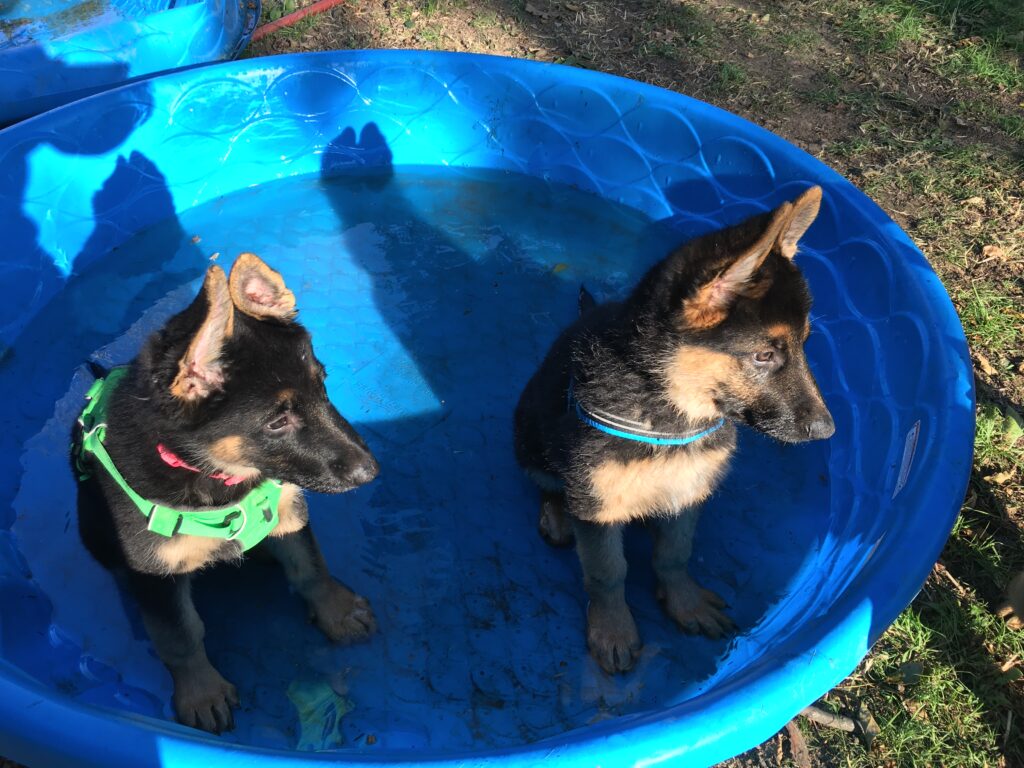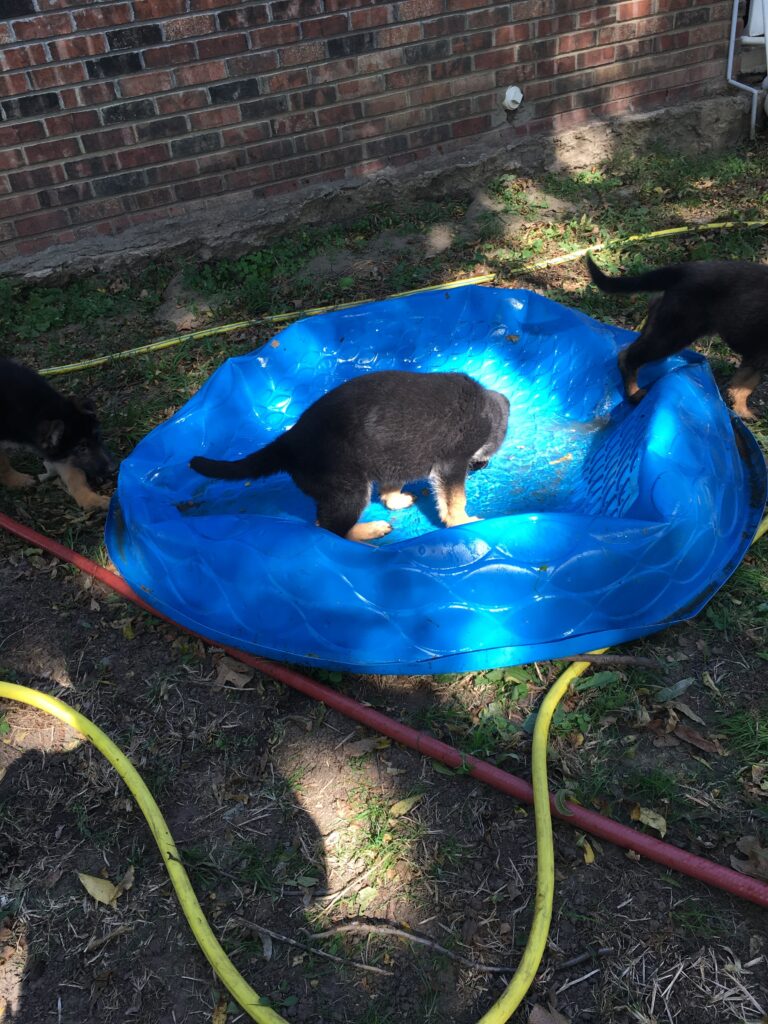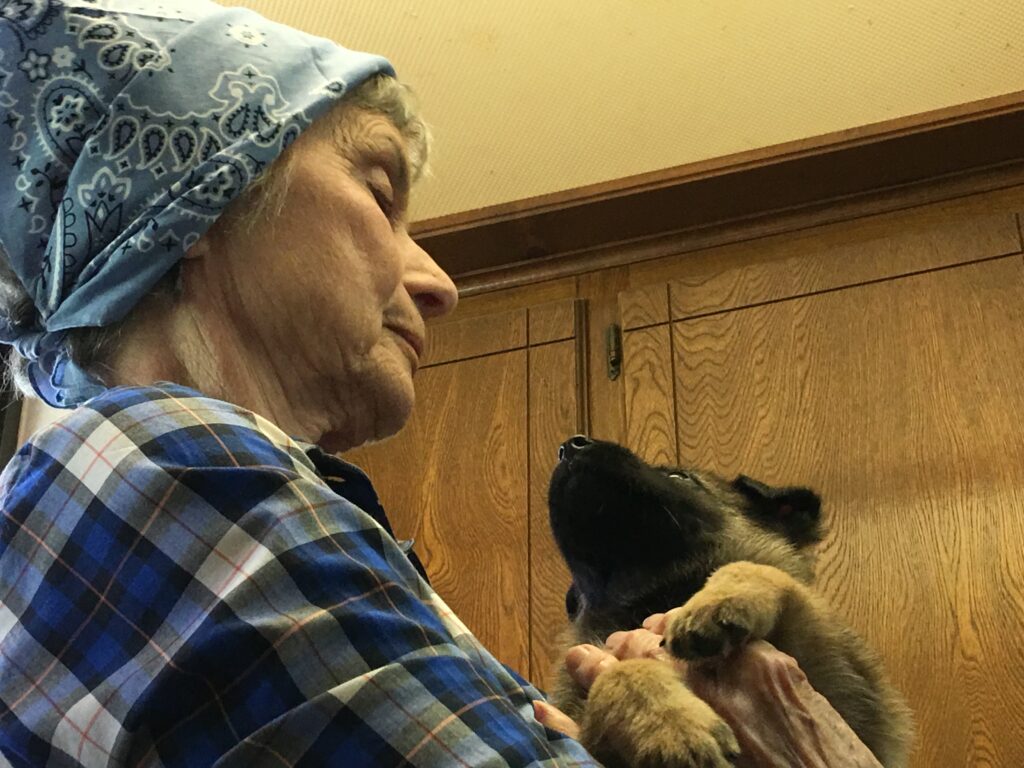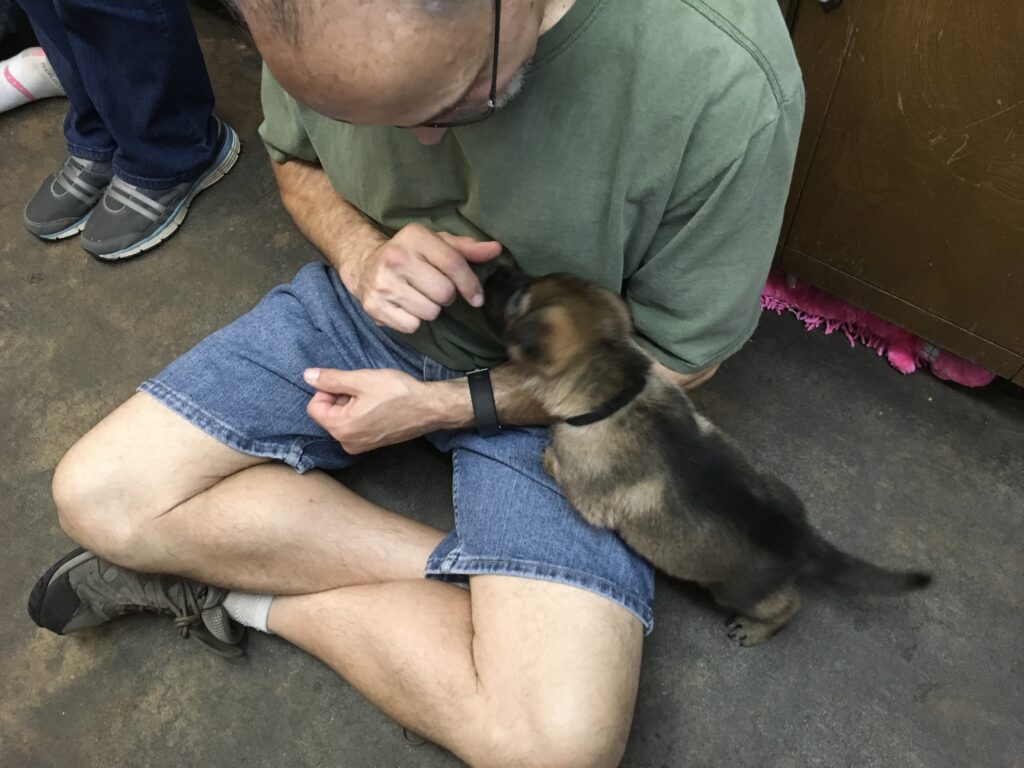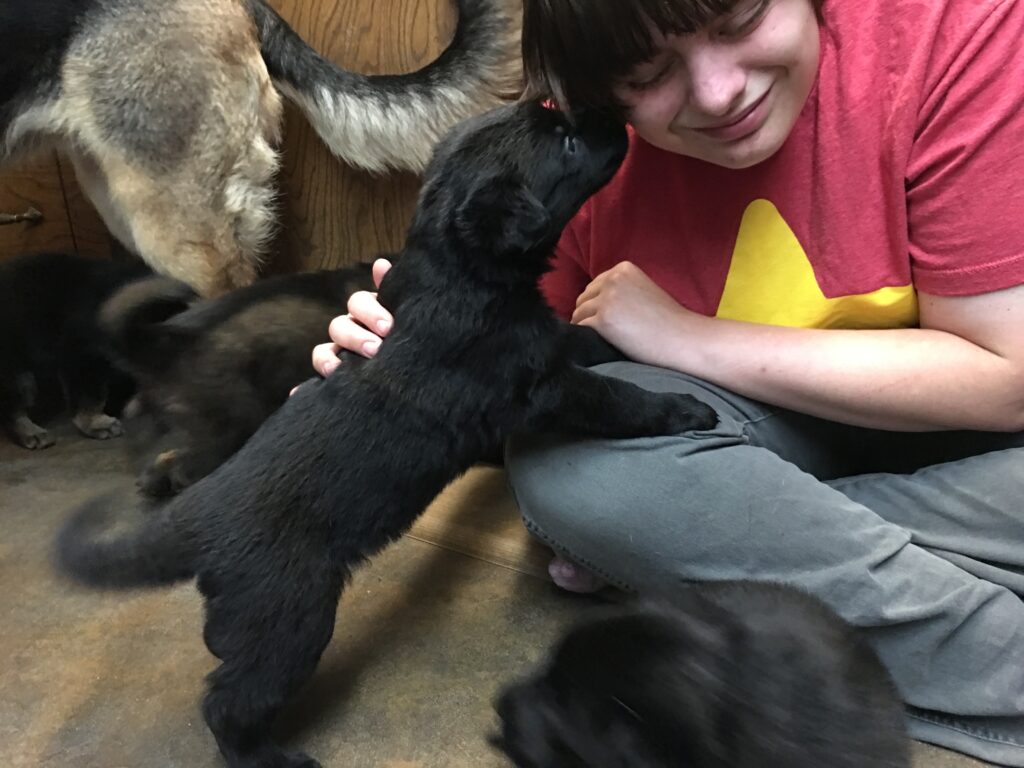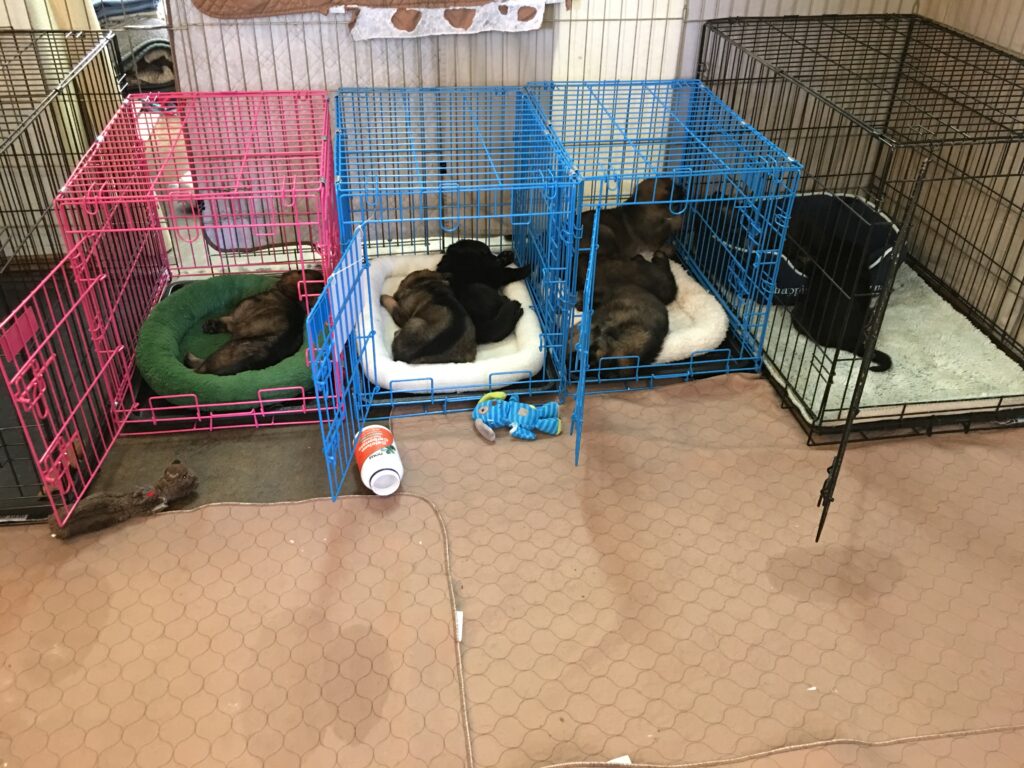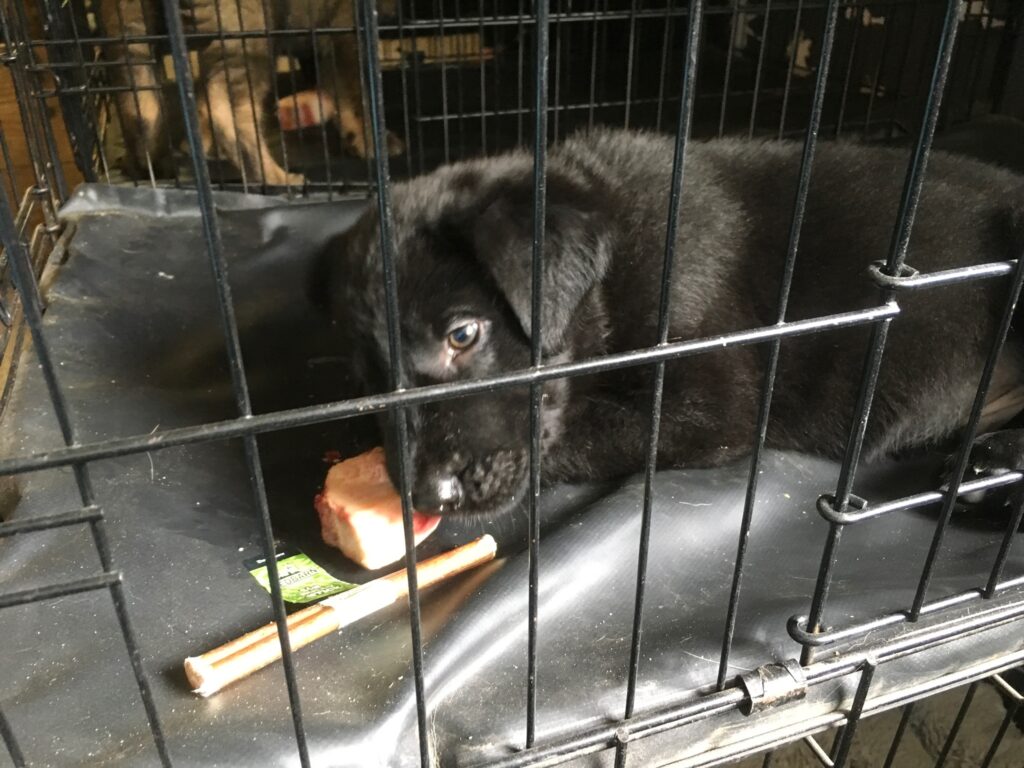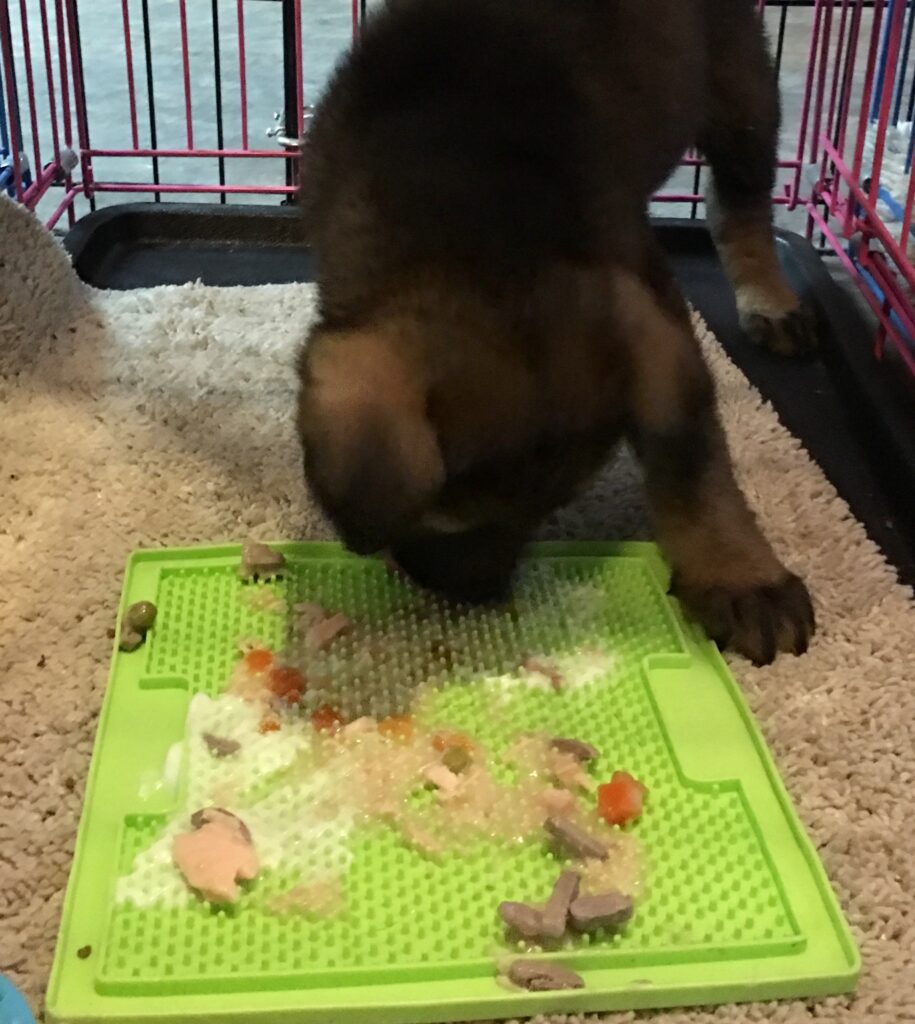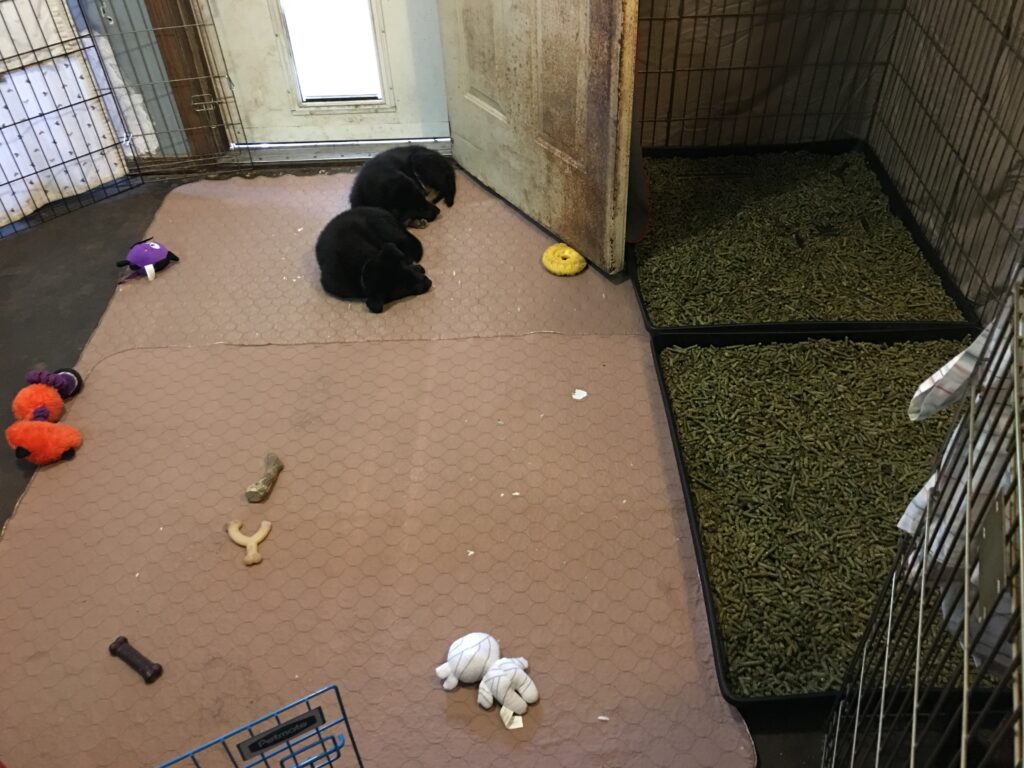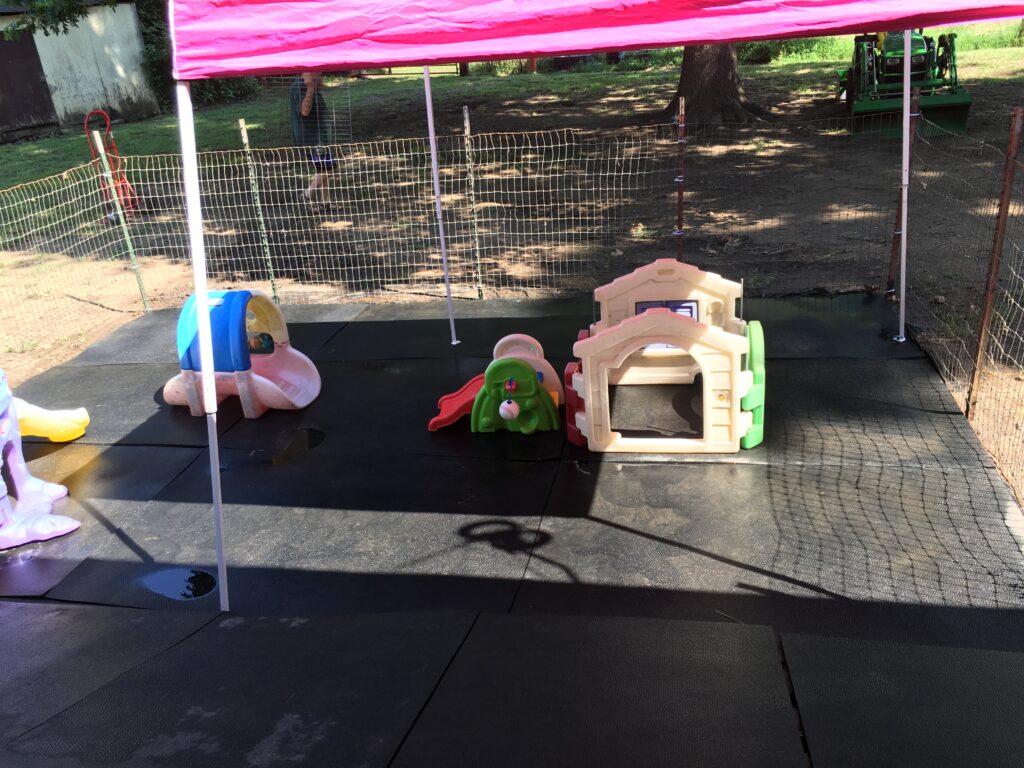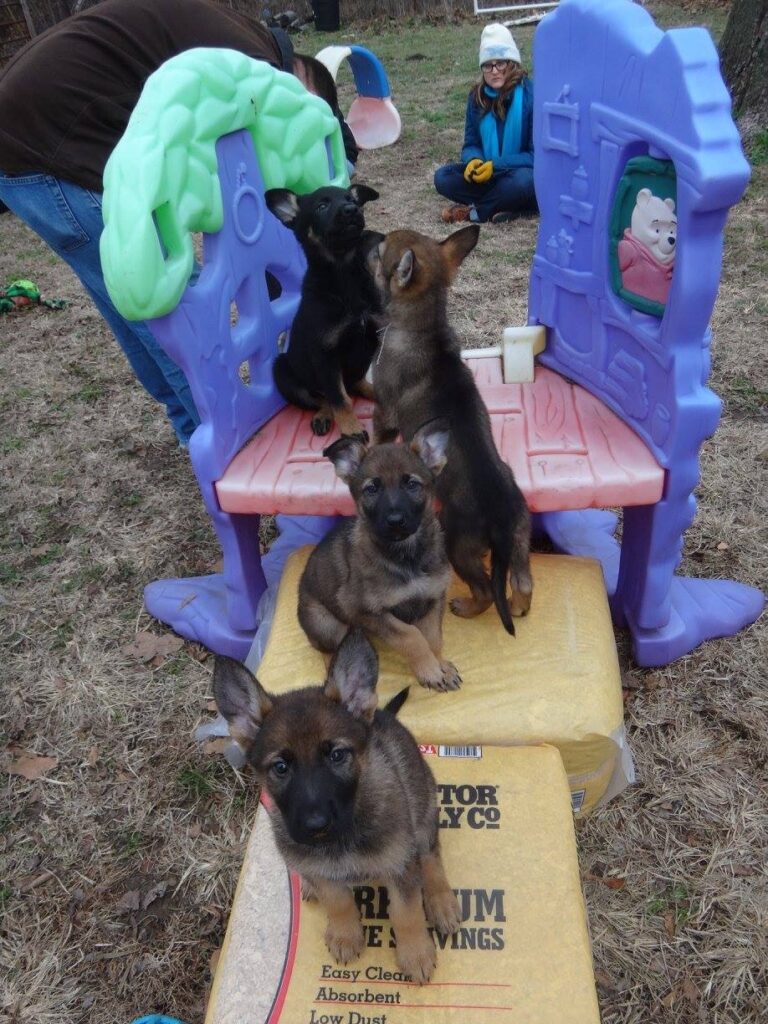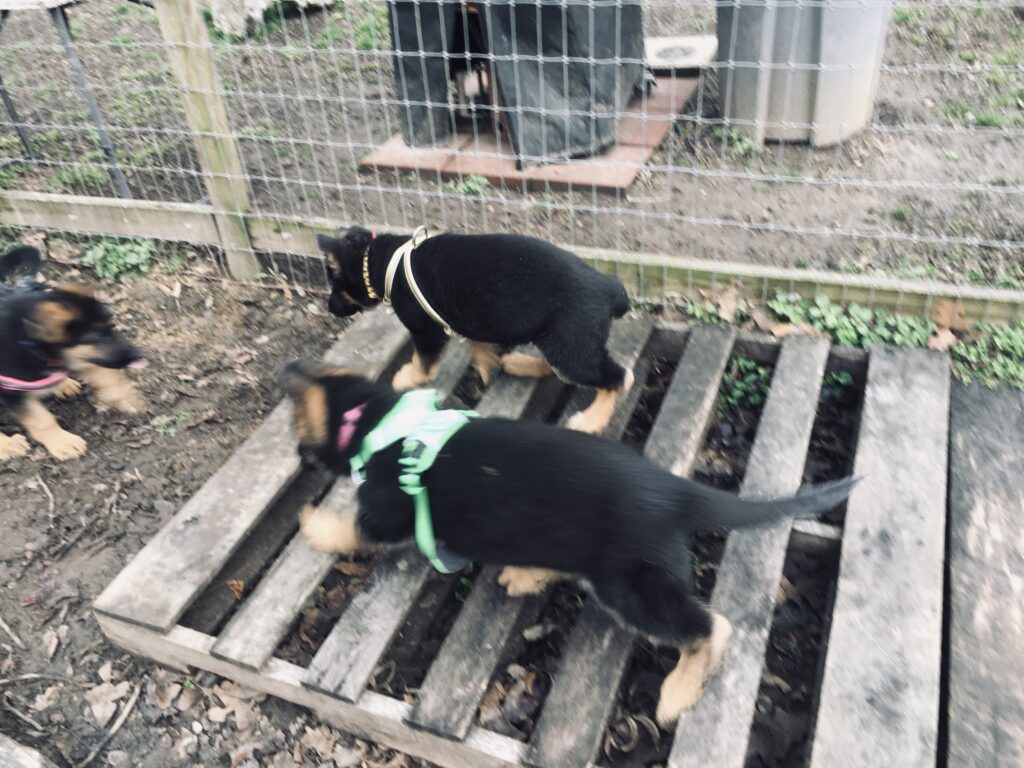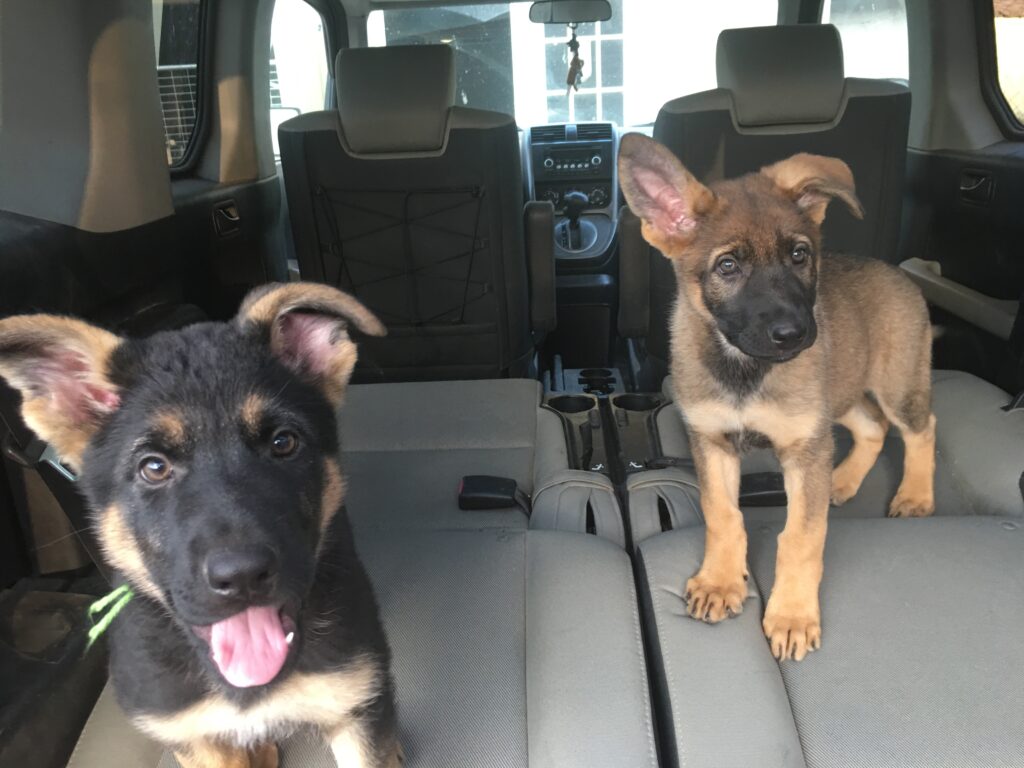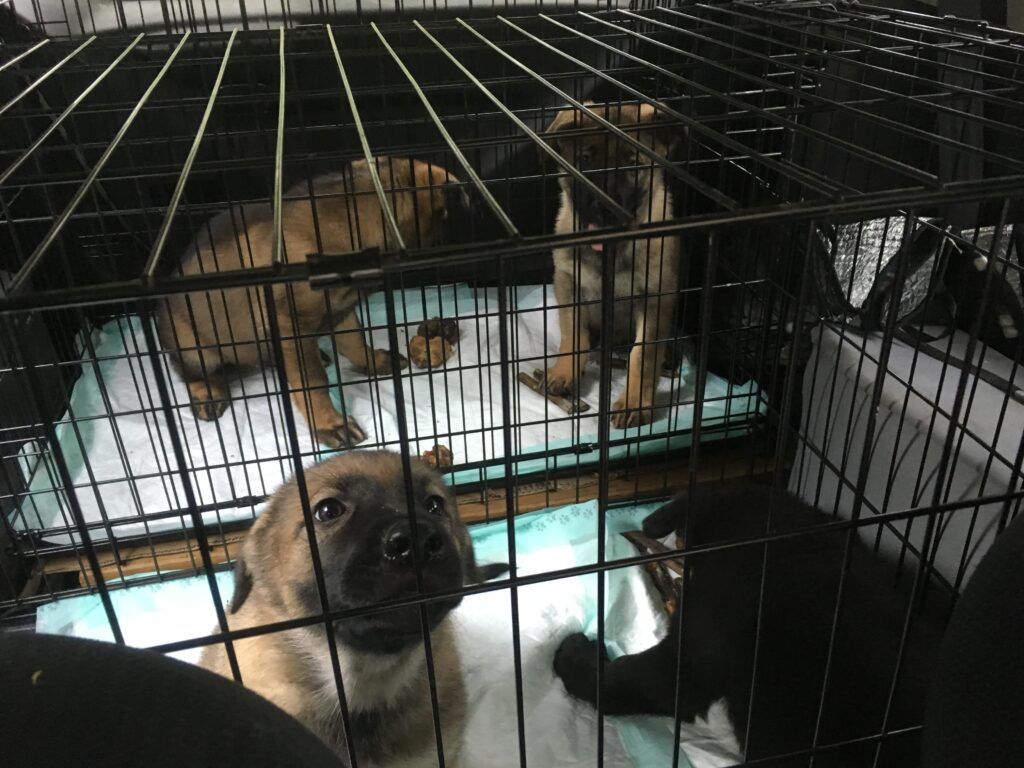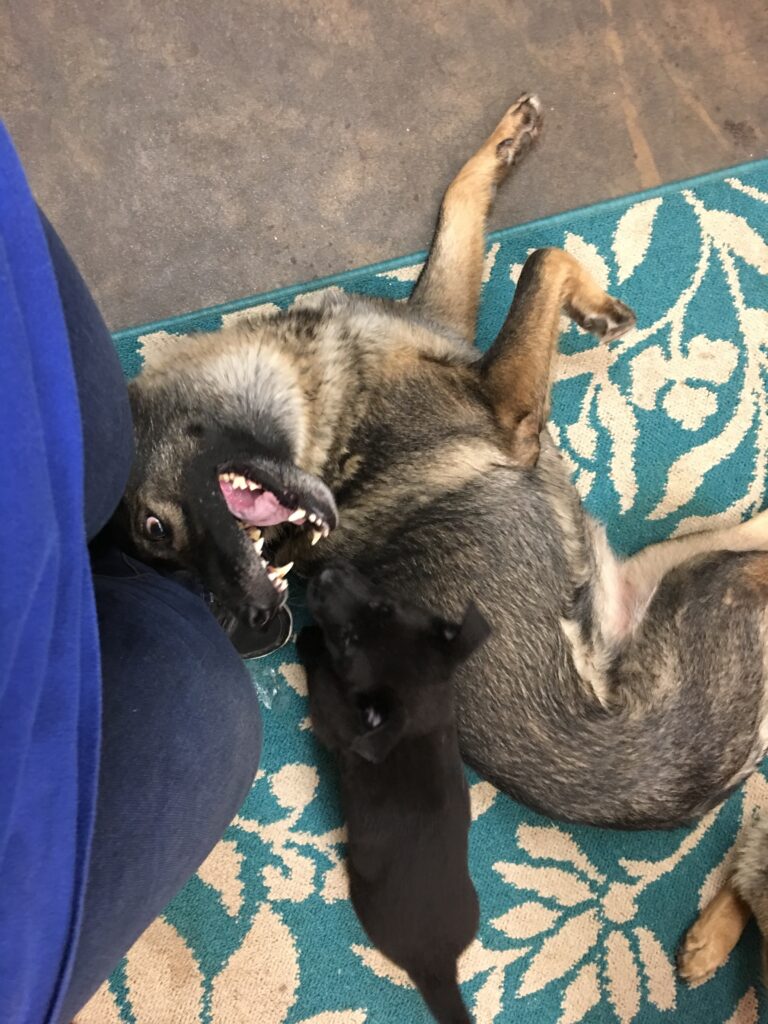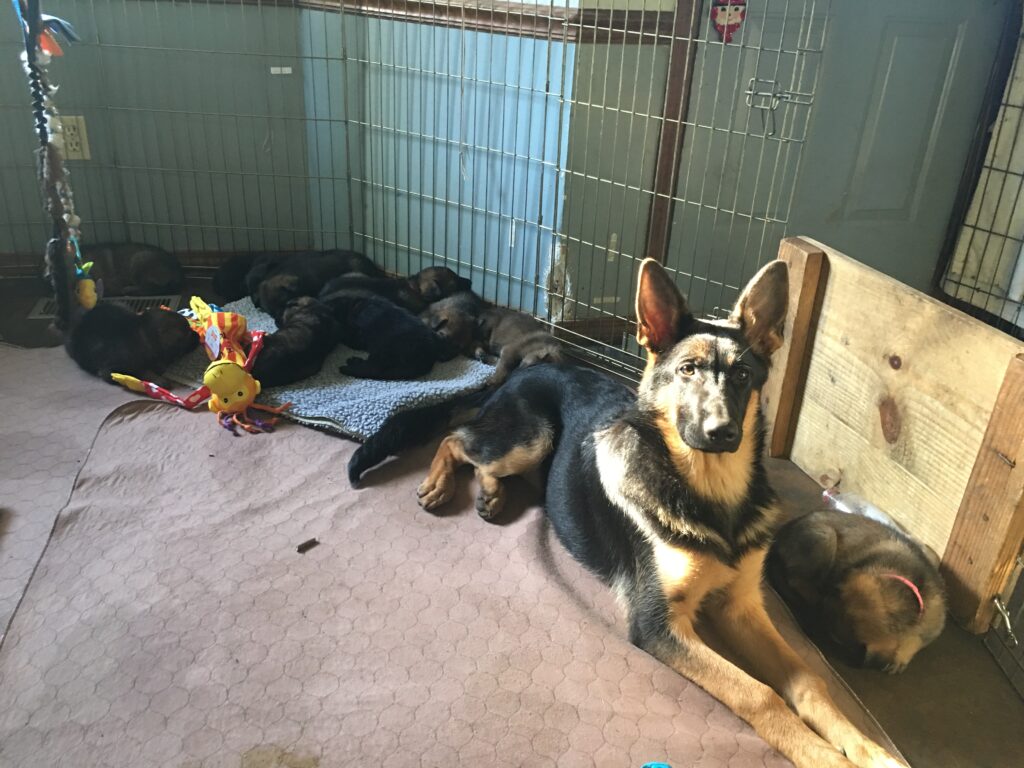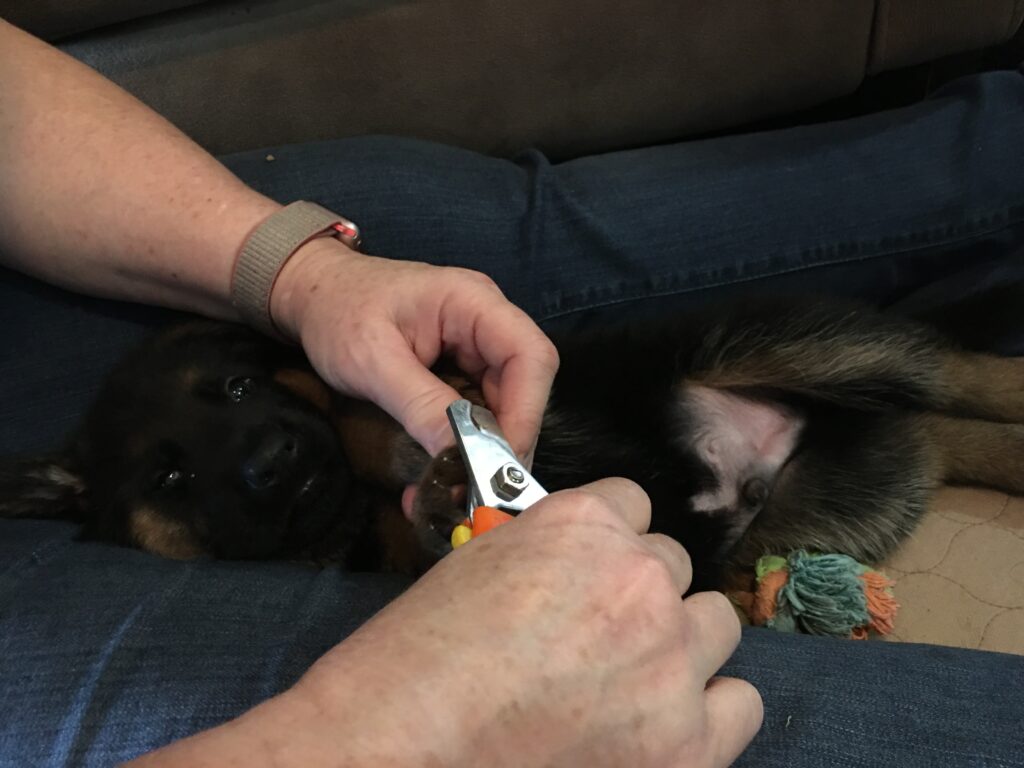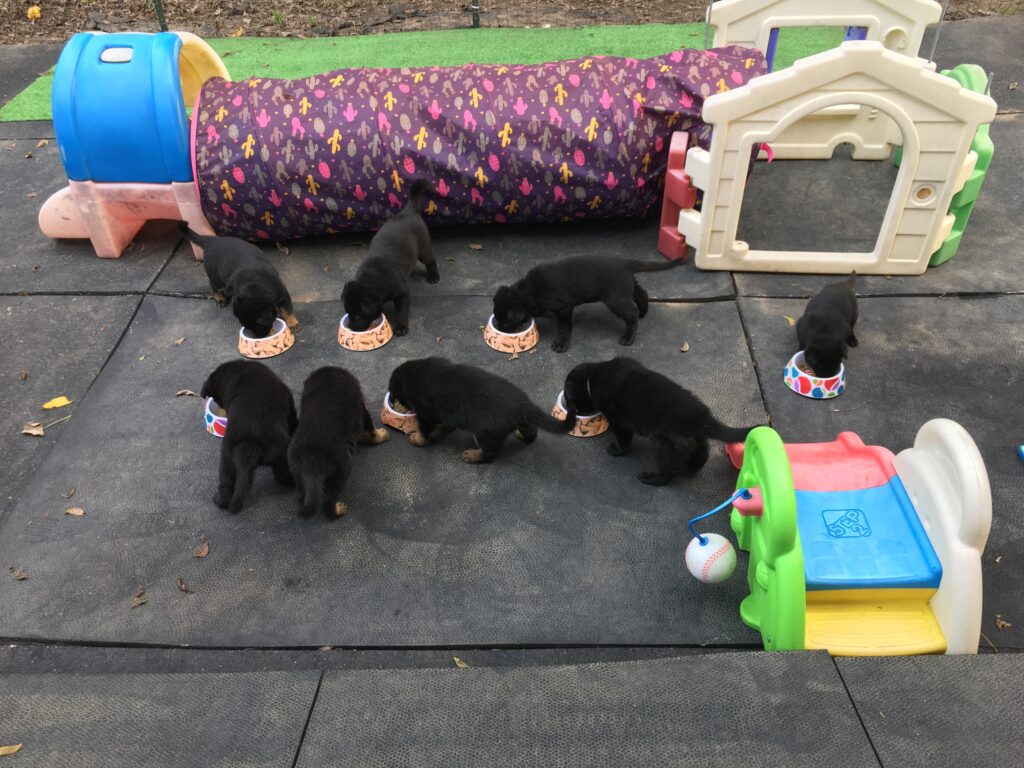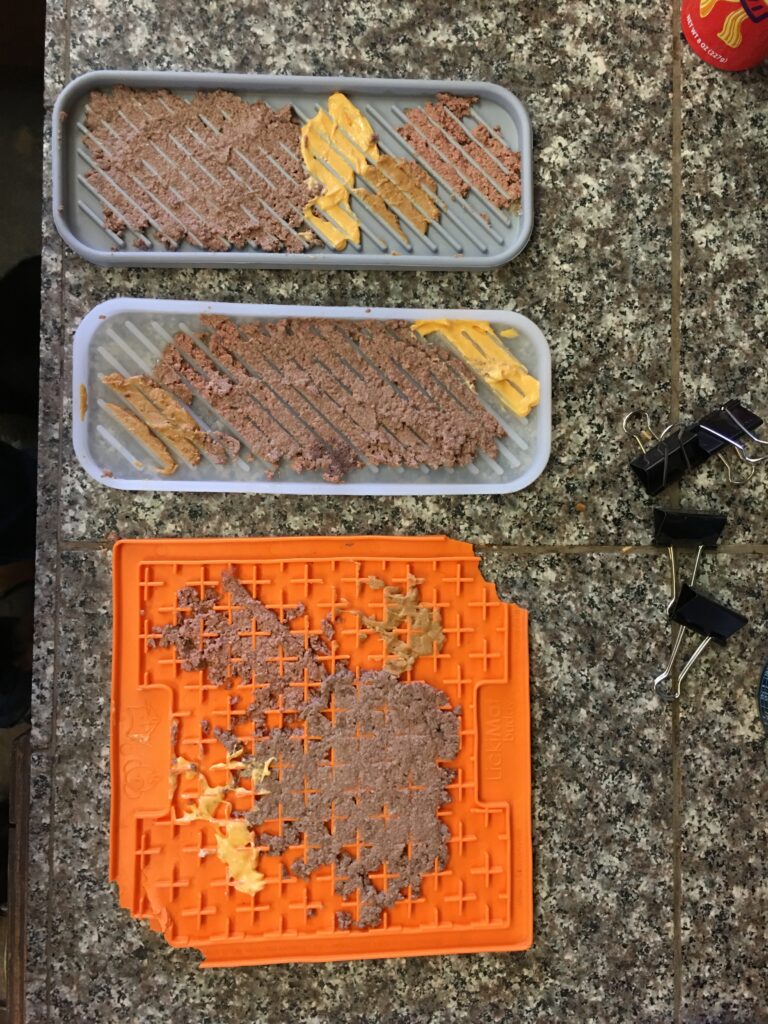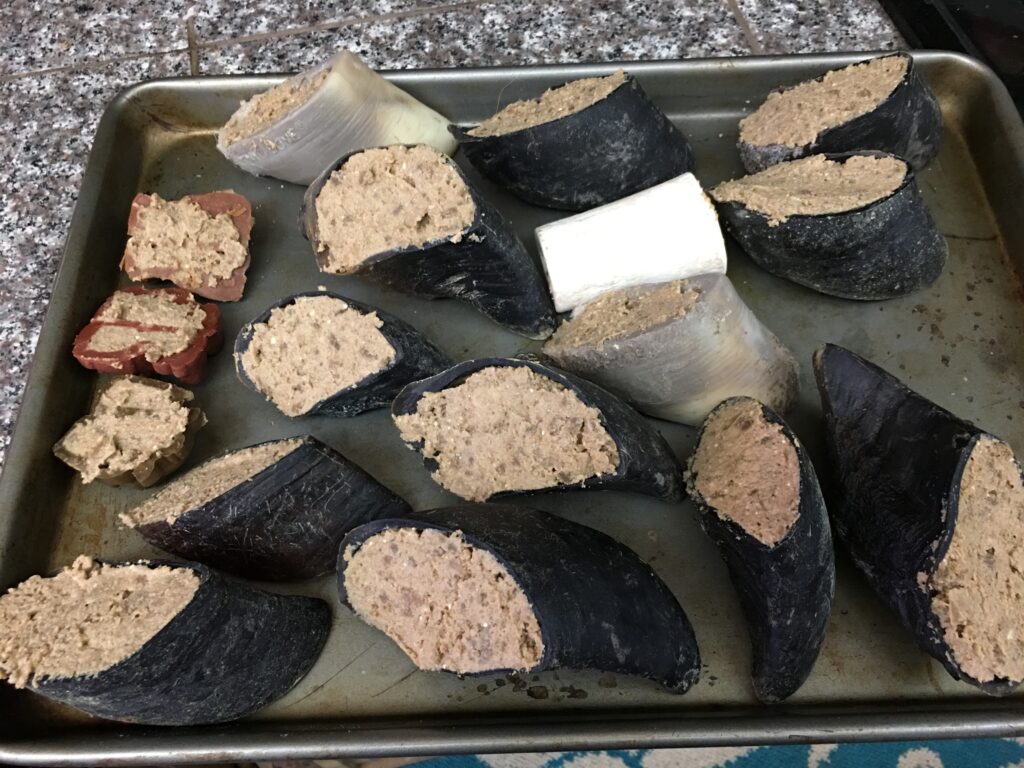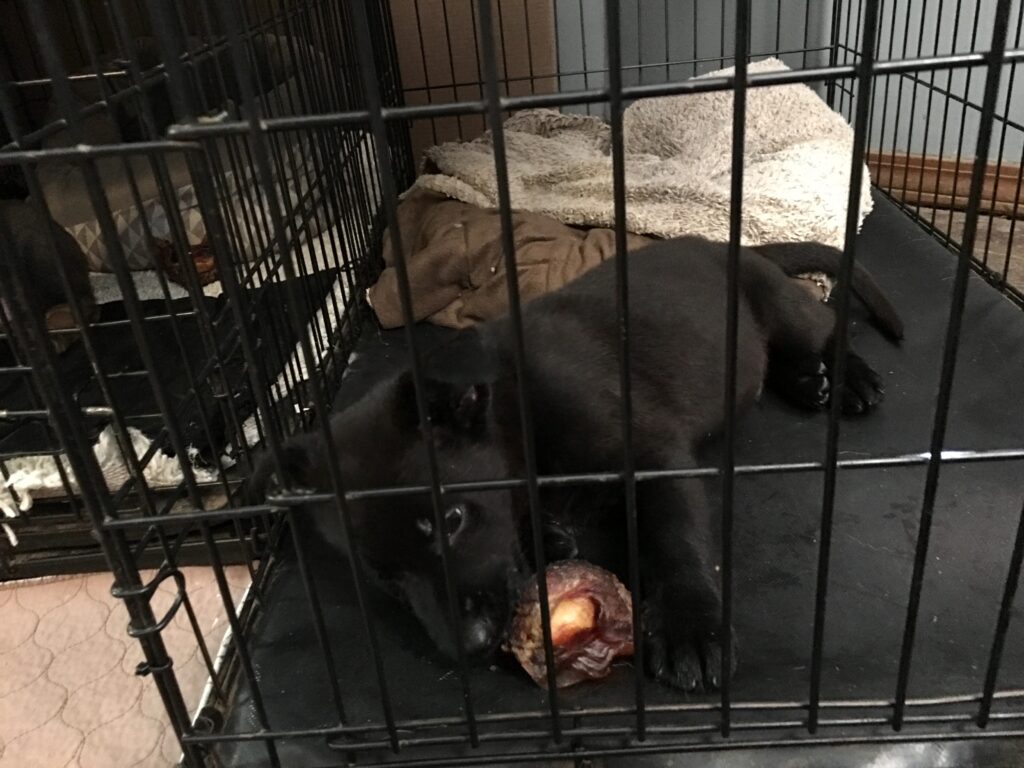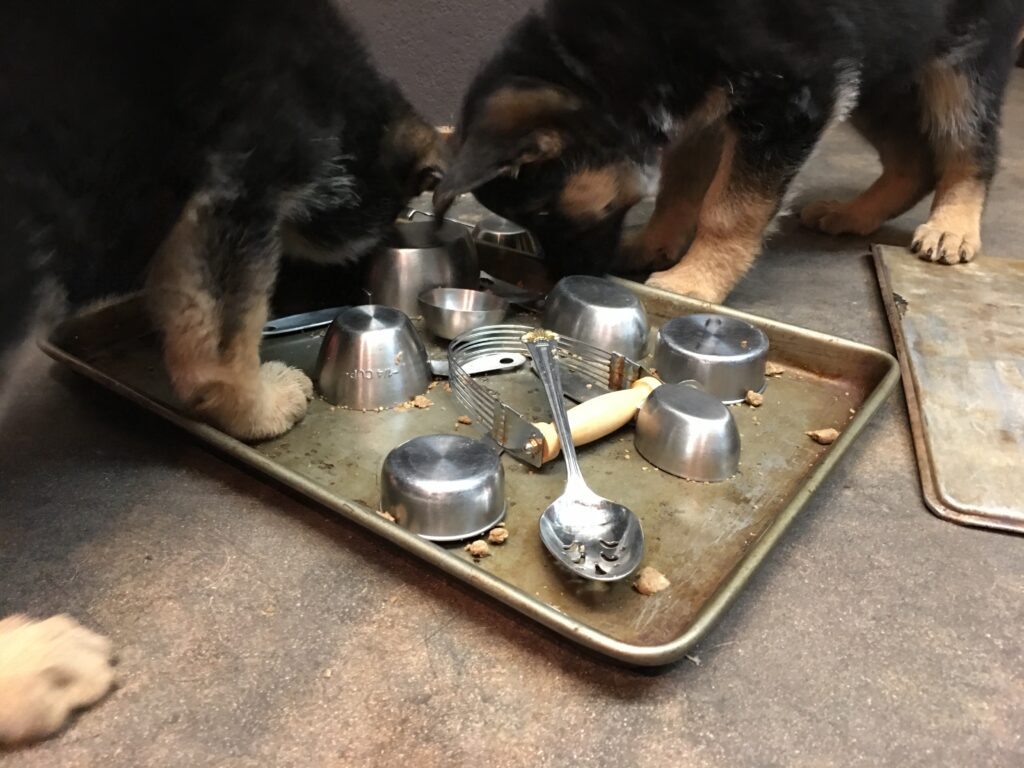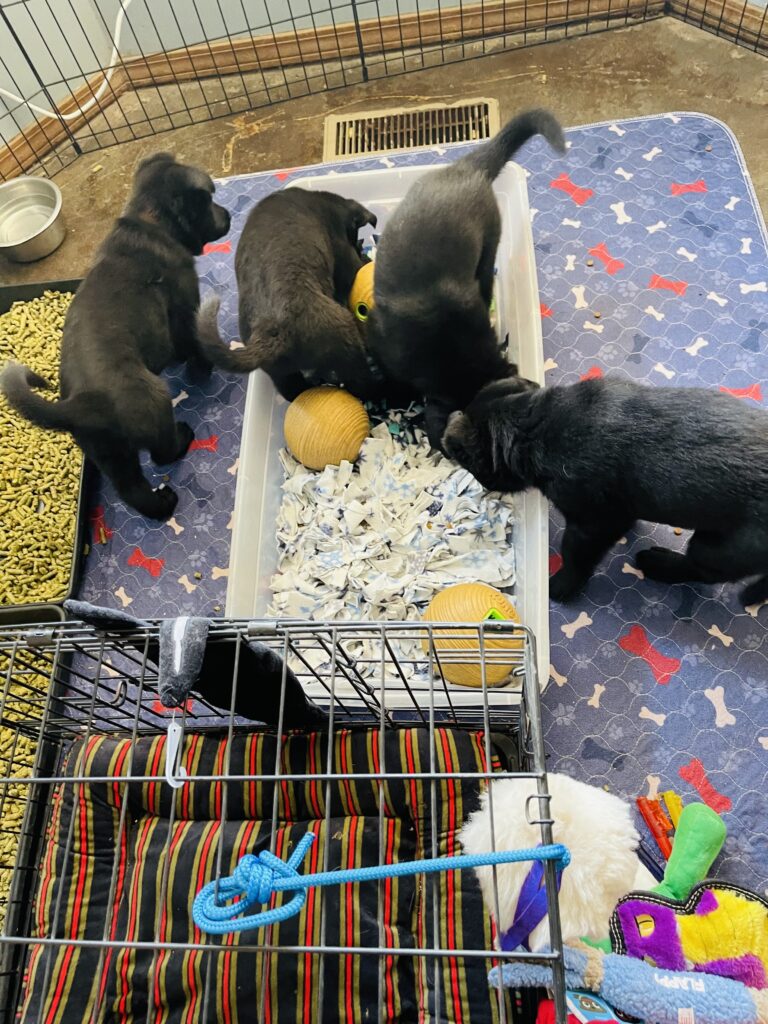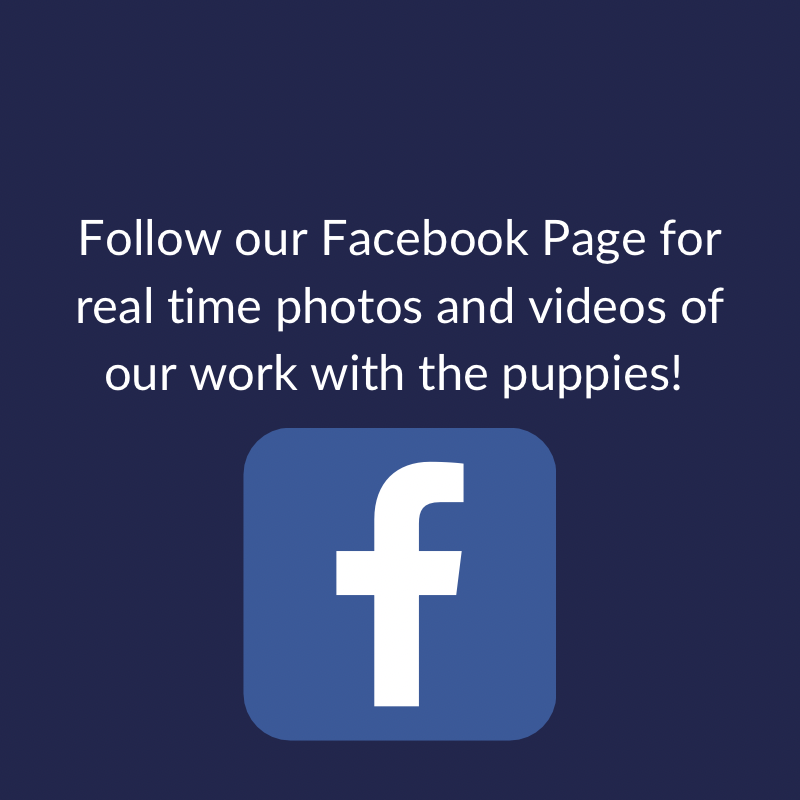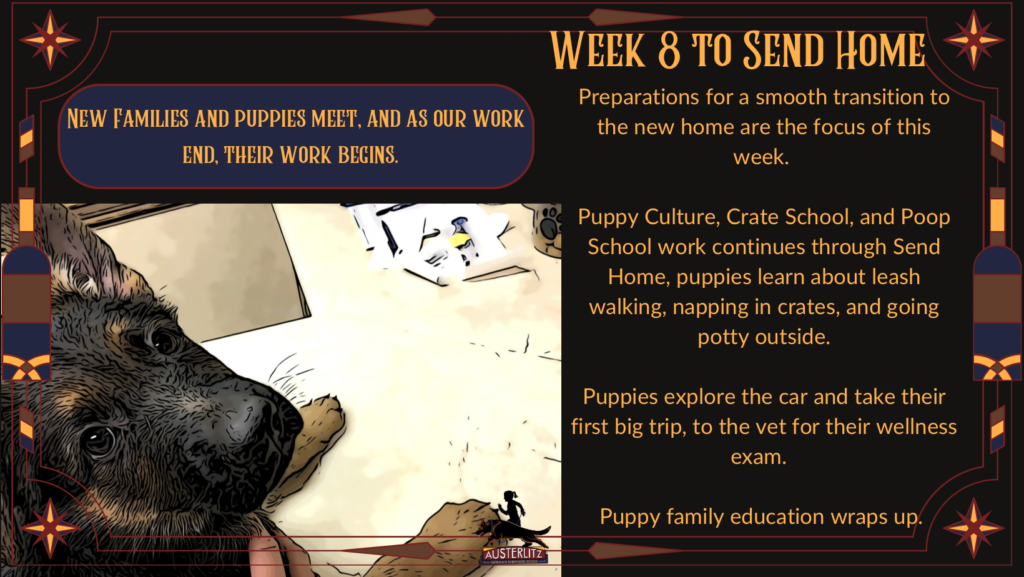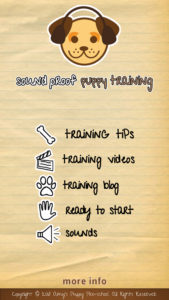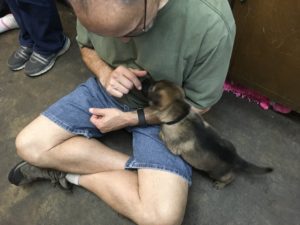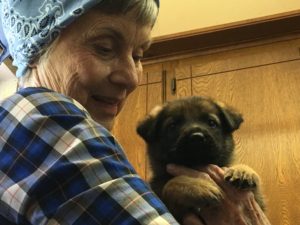How We Raise Our Puppies
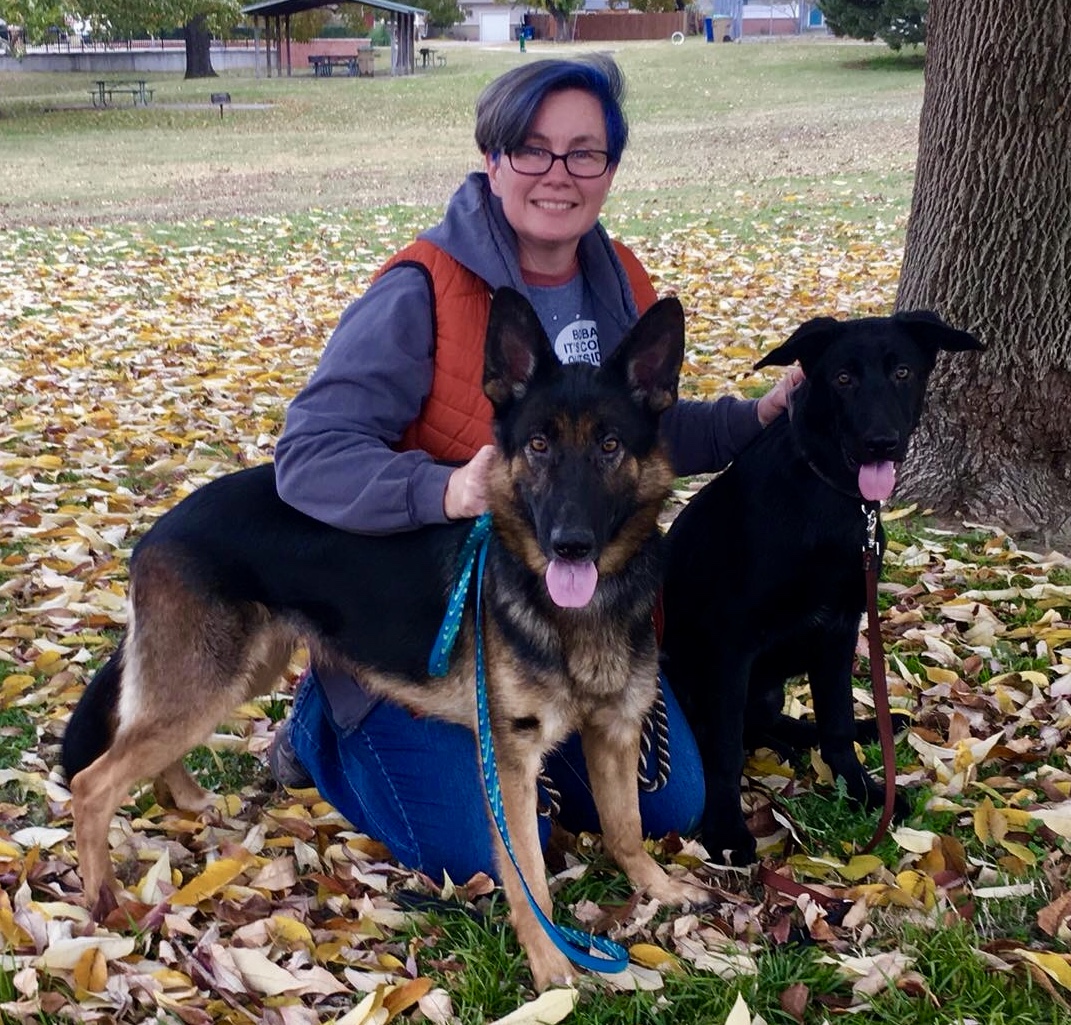
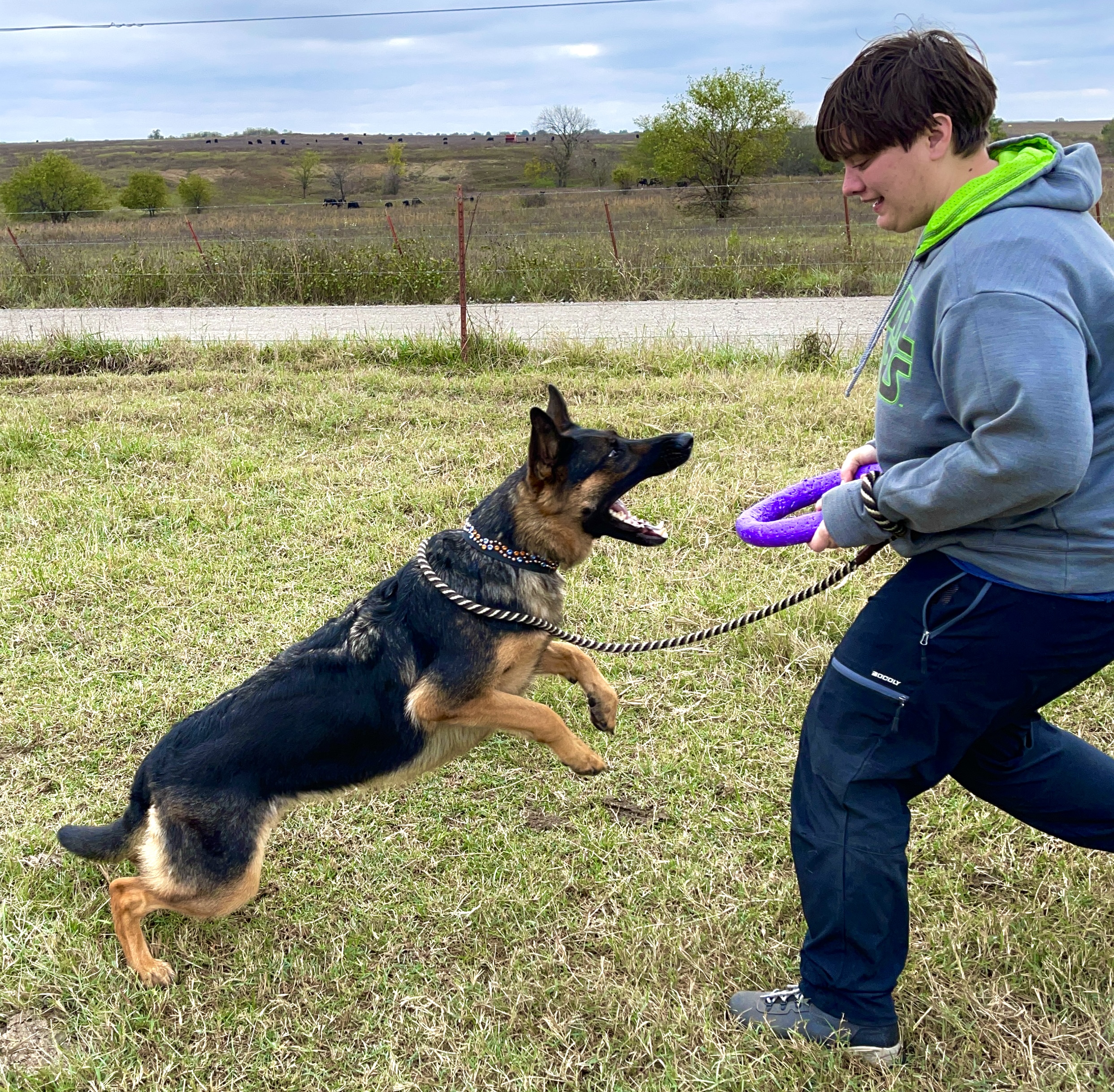
As German Shepherd Breeders we always work hard to produce well adjusted puppies.
This extends beyond pedigree research, sound breeding practices, and health testing and into how we raise our puppies.
Everyone loves puppies, they are so cute and sweet, but did you know there are important developmental periods your puppy will go through before ever joining your household? Further, that your puppy’s early puppyhood experiences can affect it’s health and behavior throughout it’s life.
In our desire to raise the most behaviorally sound, confident, and stable puppies possible we implemented the game changing Puppy Culture puppy raising, training, and socialization protocols almost seven years ago and are extremely pleased with the long term benefits our puppies, and their owners, get from this evidence based program.
To learn more about Puppy Culture watch this video.
We have also developed our own cleanliness training program to ensure our puppies learn house training foundations and are easy to house train in the new home and Crate Conditioning program that focuses on creating confidence while confined and ensuring our puppies are easy to crate train.
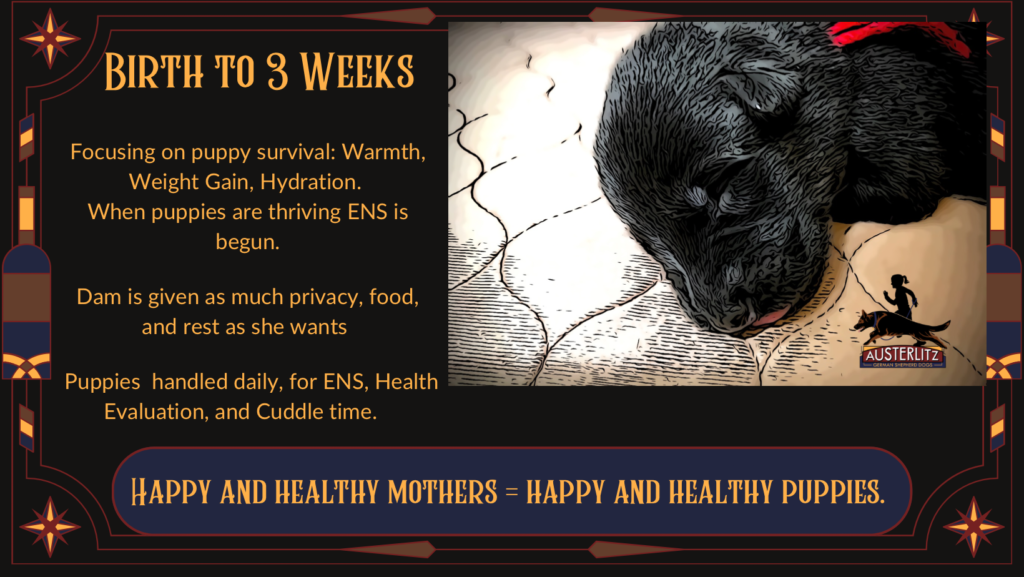
The first three weeks of a puppy’s life is filled with sleeping and eating, as they are carefully and constantly tended by their mother. During this time puppies needs consist of a caring mother, warmth, grippy and dry bedding, and lots of time for the hard work of growing. Our work is lite during these day since GSDs are excellent mothers, consisting mainly of ensuring the puppy box is warm, dry, and draft free and the dam has all the privacy she wants. Stressed, unhappy, or unhealthy dams affect their puppies in a multitude of ways that can last a puppy’s entire life, so ensuring our mothers are healthy, happy, and content is vitally important.
Highlights of our work during the first 21 days.
1. Health and wellness are monitored twice daily, any puppy who is not gaining weight, content, breathing quietly and easily, ”popcorning” (the small muscle spasms that strengthen muscles) and hydrated is given immediate support because during the first 21 days puppies are very vulnerable to dying.
2. Stable puppies have Early Neurological Stimulation started on day 3, puppies who are struggling in any way have Simulated Maternal Stimulation
3. As soon as puppies start urinating on their own a designated potty zone is introduced as the earliest foundation for our cleanliness training process.
4. Dam is allowed as much privacy and rest with her puppies as she desires. Typically our mothers want to spend 24/7 with their puppies for the first 14 days, and from there through the weeks she will gradually want more time away as she moves from the intensive care stage, to the teaching/play stage, and finally weaning (physically and socially) stages of her work raising her puppies.
5. We start conditioning the puppies to enjoy grooming by gently stroking them with a soft human baby hairbrush.
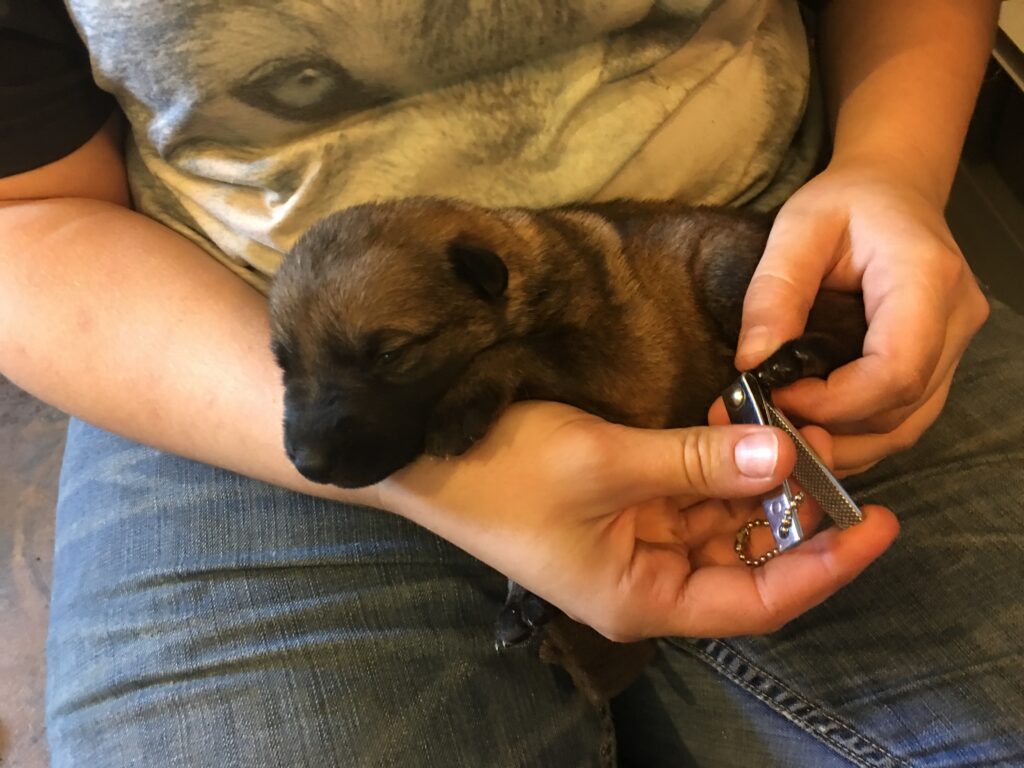
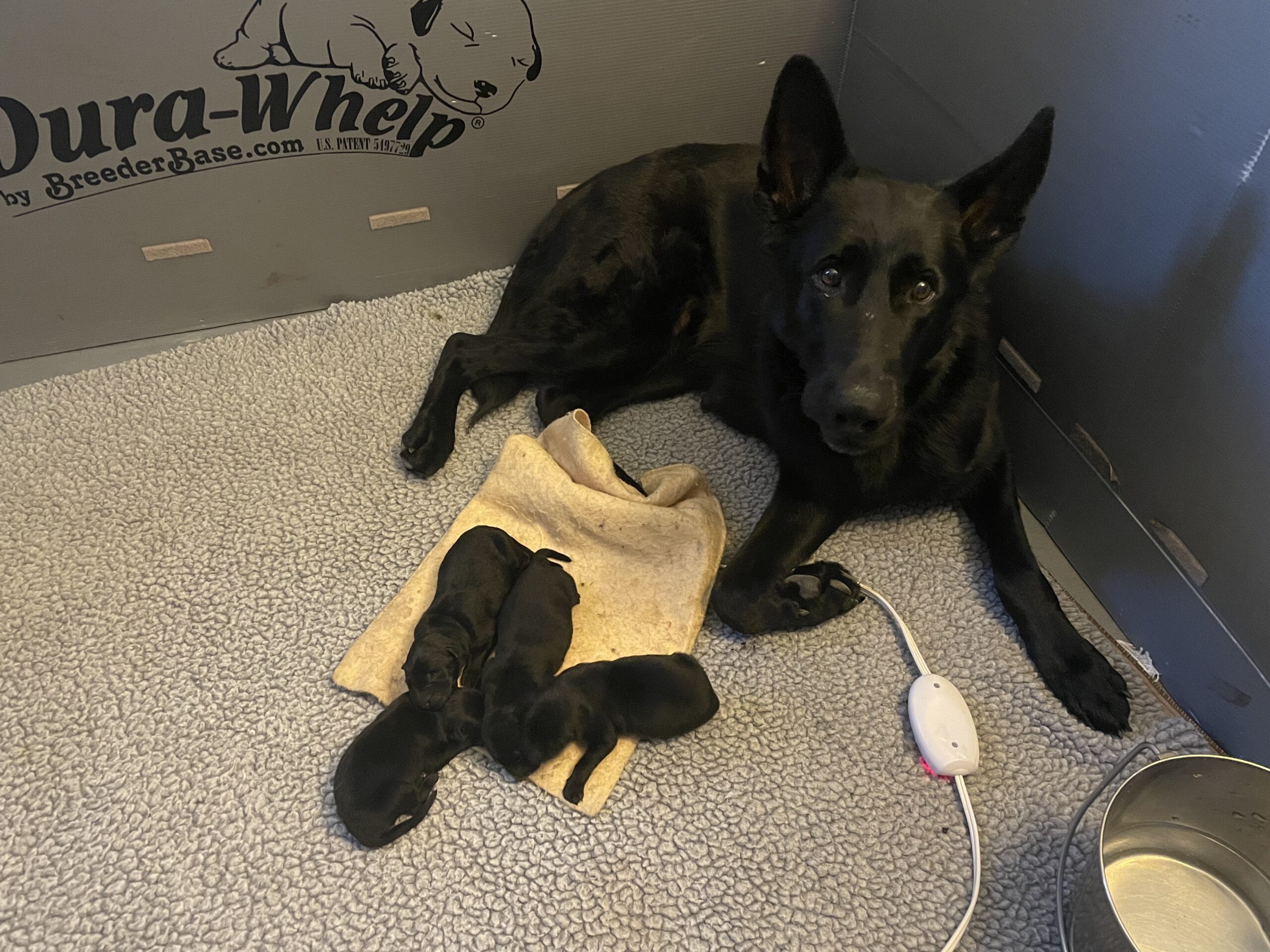
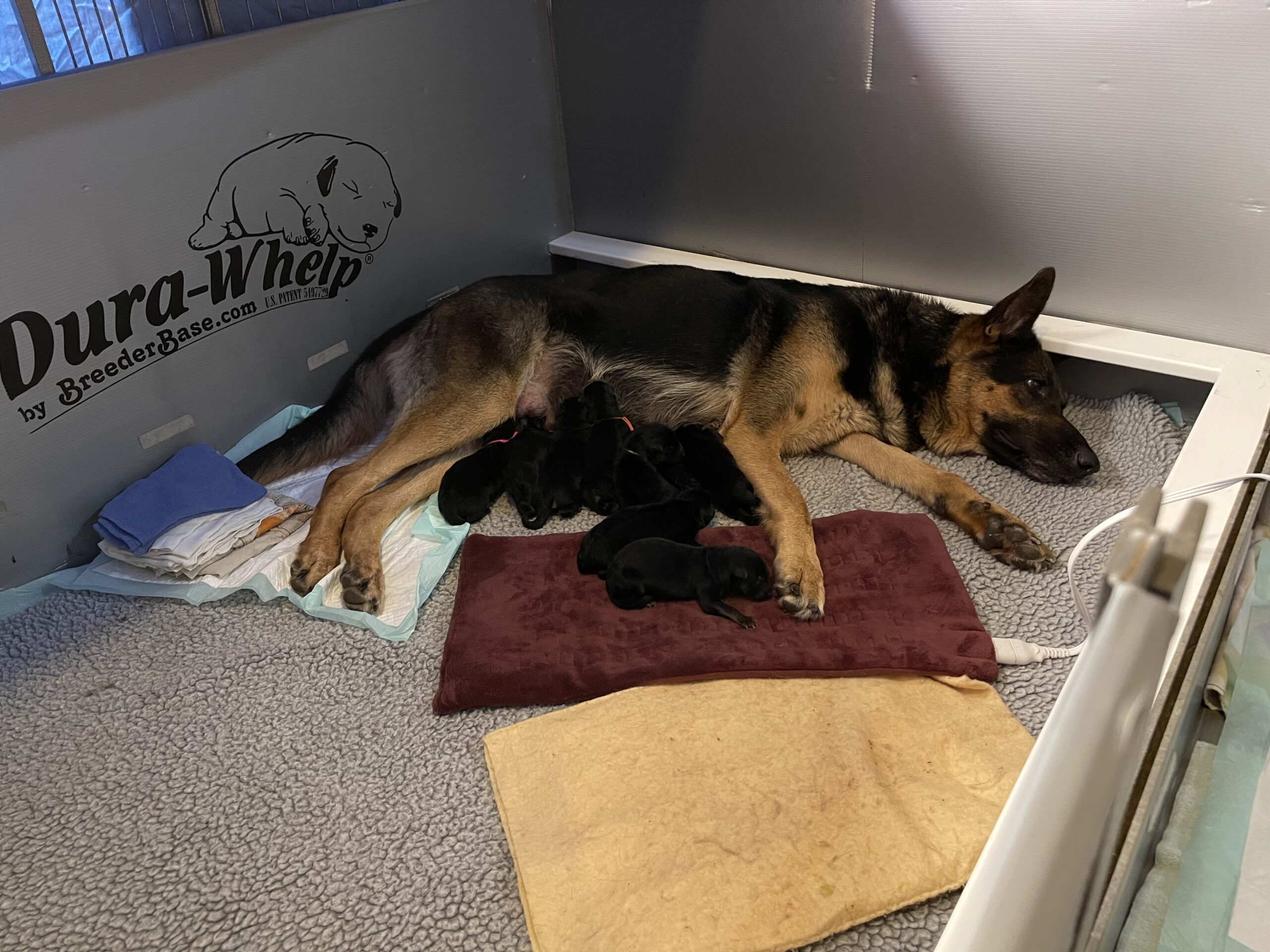
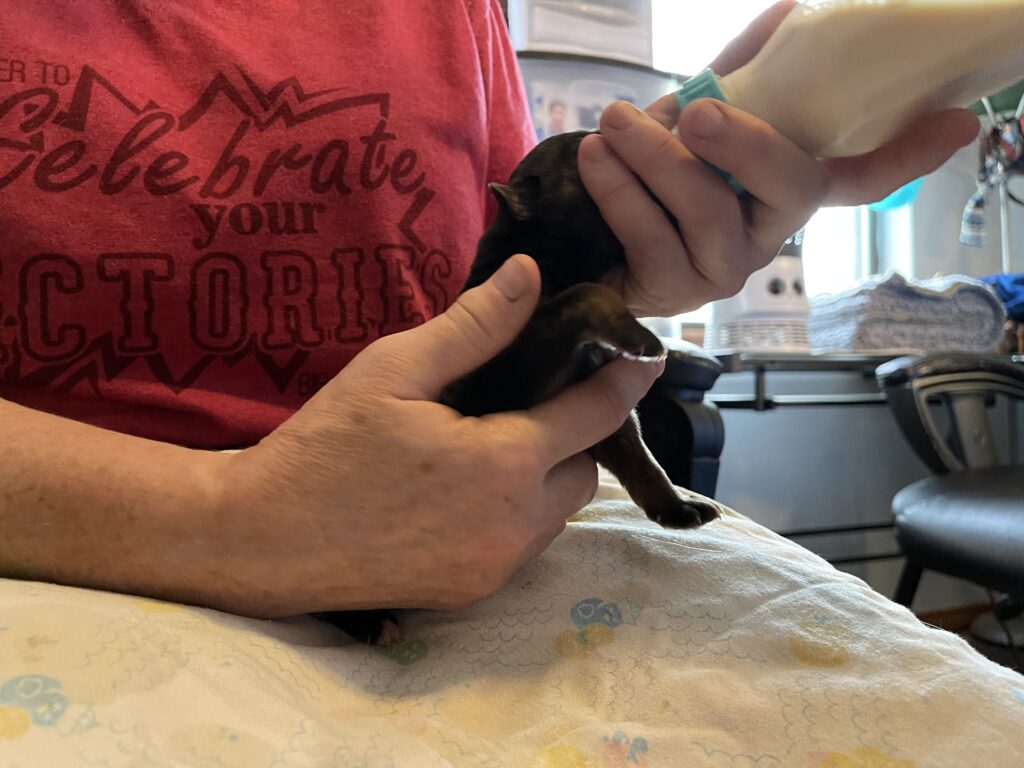

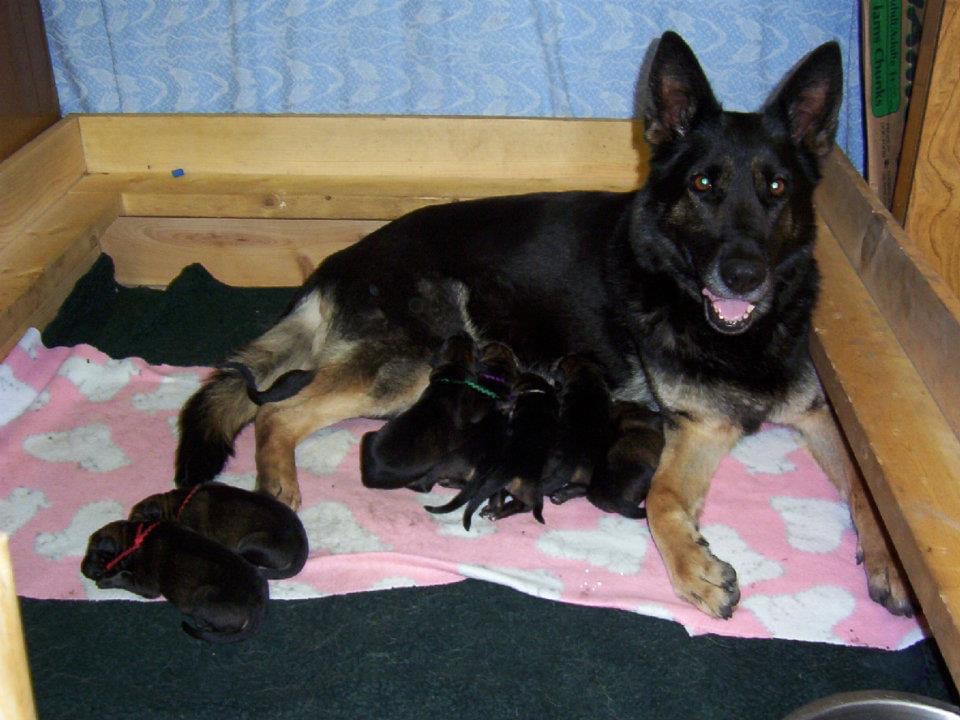
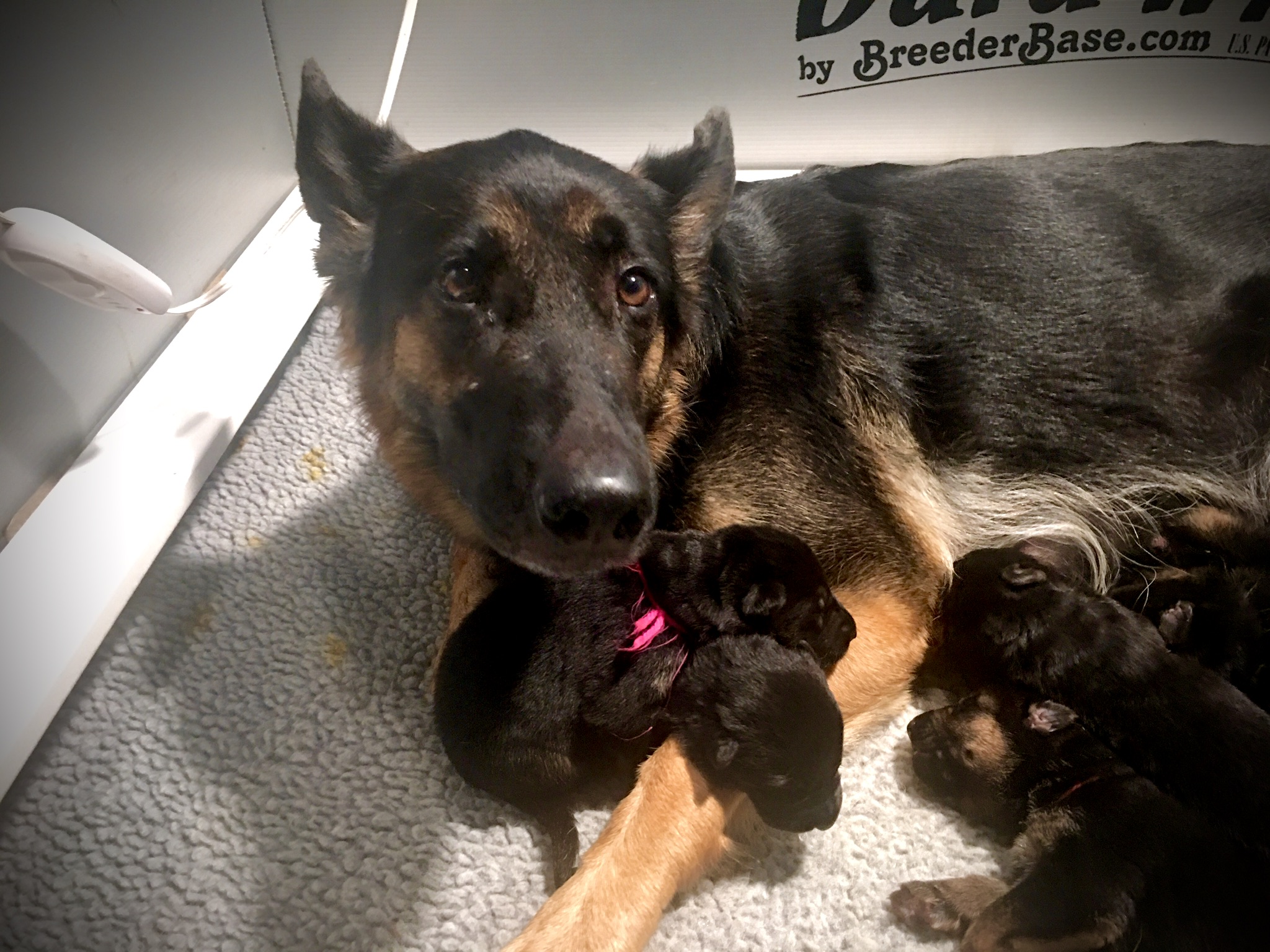
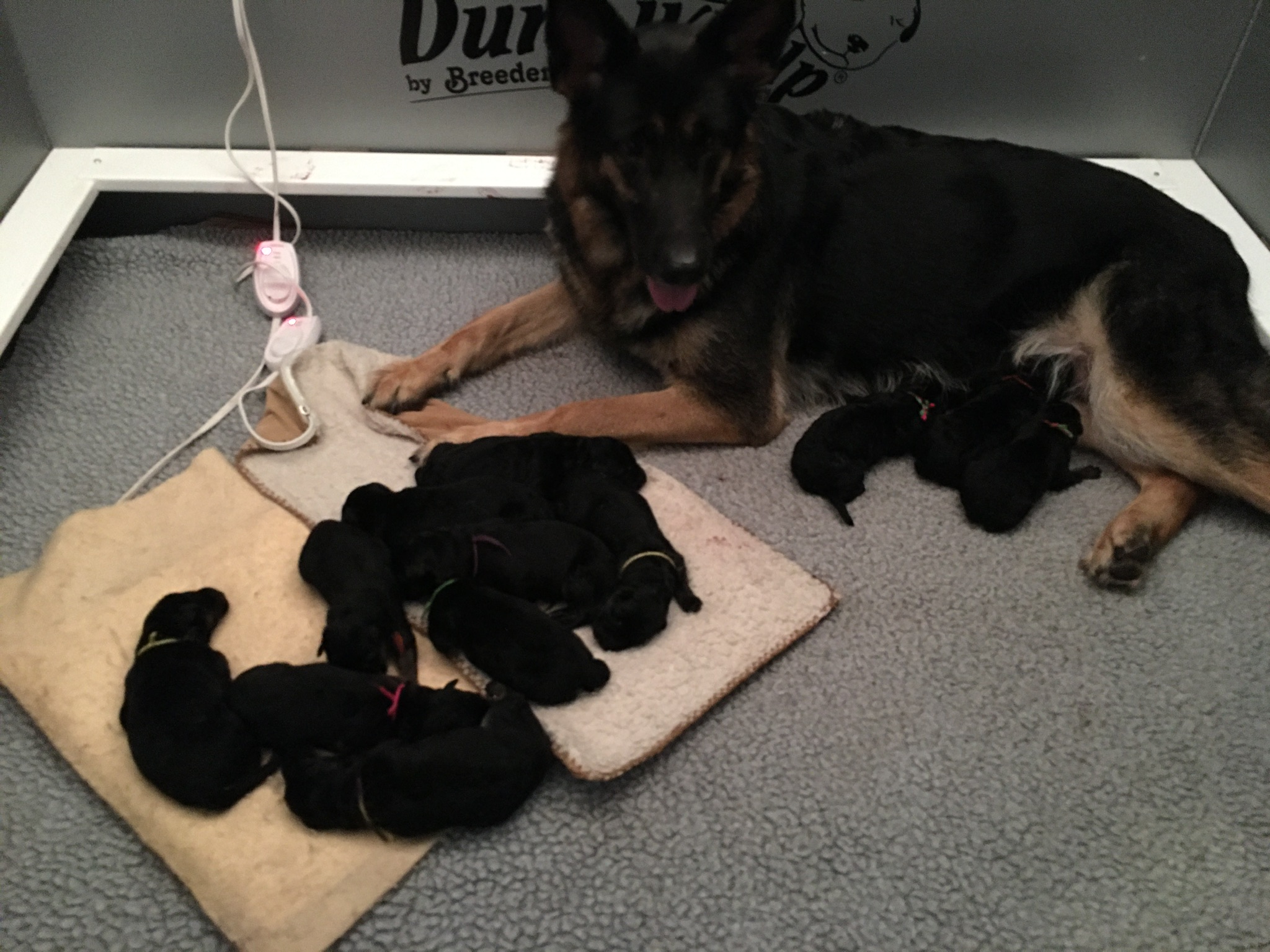
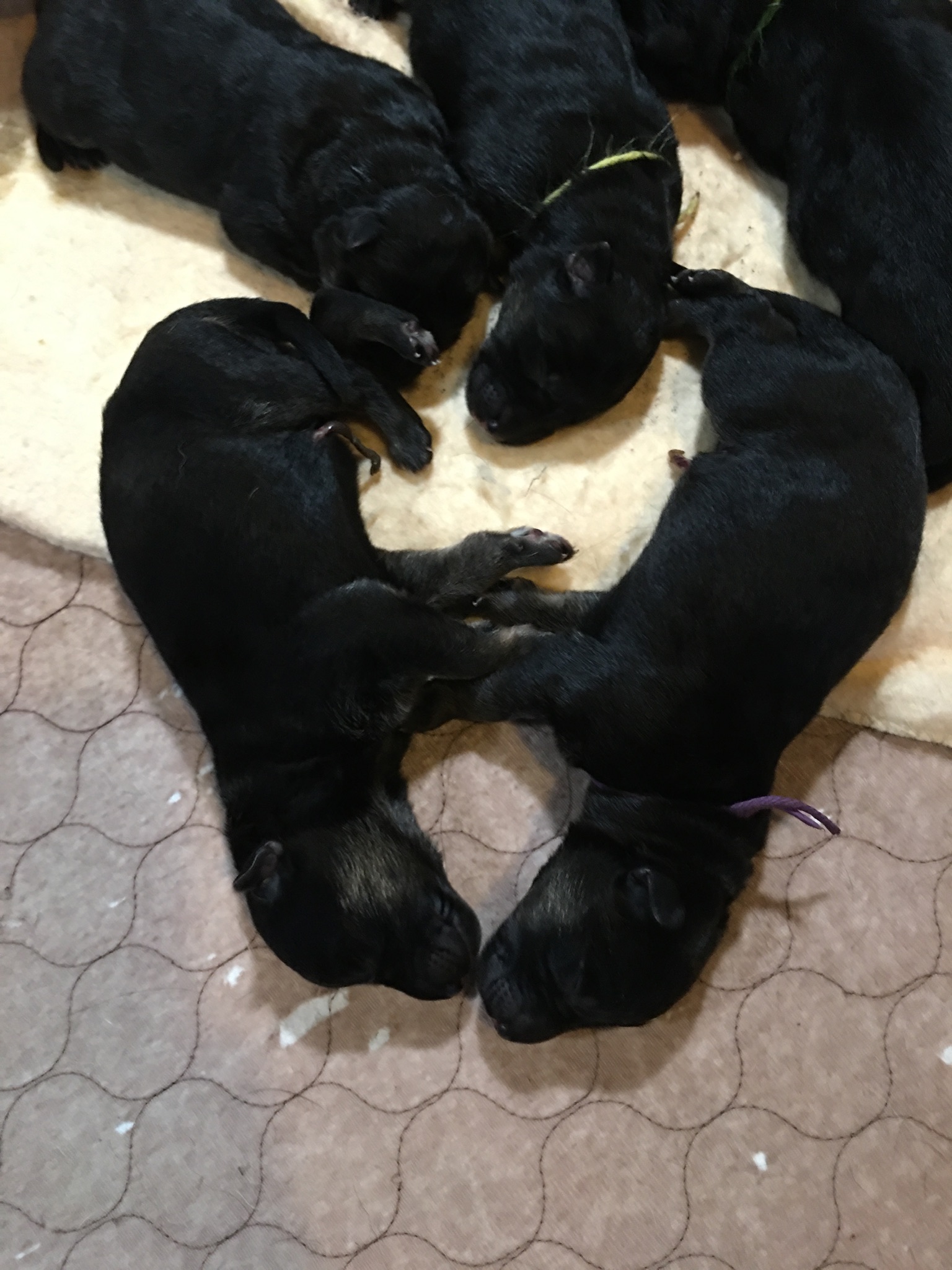
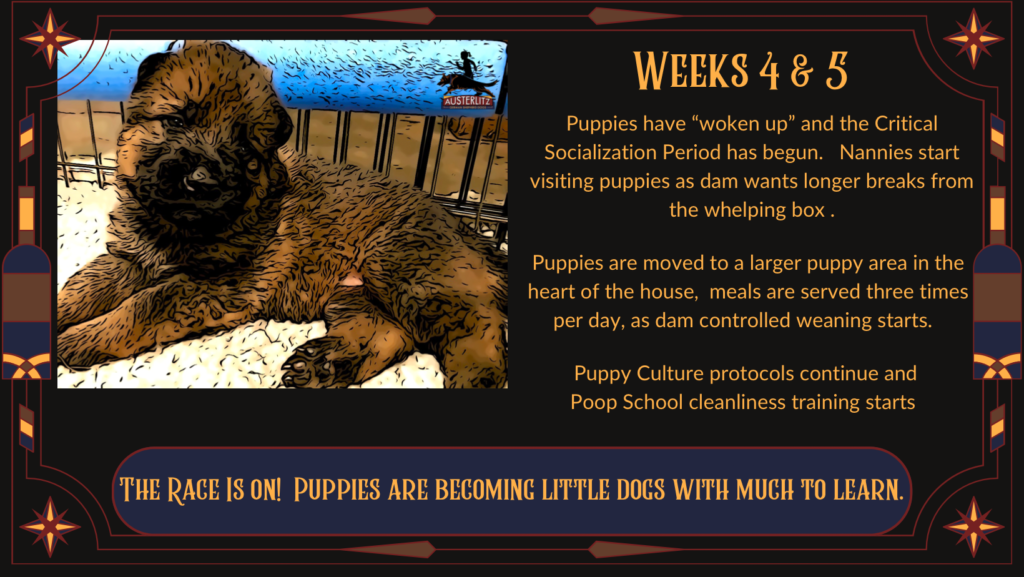
By week four our puppies are up on their feet, walking, starting to interact and play with each other, and the critical socialization period is underway. The dam is needing to spend more time away from her puppies, and the puppies start learning about how to be a dog from our skilled, puppy loving, nannies. The nannies role in socializing the puppies to the ways of dogs is invaluable.
While the tasks and work a skilled breeder does are too many to list, here are some highlights.
1. Puppies are moved to a larger, more interesting area, and cleanliness training continues with a designated toilet area. The indoor and outdoor puppy pen are kept scrupulously clean and provide room to exercise and play on age appropriate play gyms, this work is part of the important Enrichment Effect and is more than just cute, it’s actually building a stronger and better brain as much as a healthy body.
2. Puppies are offered solid food (Pro Plan Large Breed Puppy) three times per day (dam can still nurse the puppies at will) in large puppy pans. Group feeding at this age fosters enthusiastic eating.
3. Regular socialization opportunities with our skilled puppy raising nanny dogs, and with us.
4. Grooming (soft brushing) and nail trims continue.
5. Puppy Culture work continues (please look over the link for more info on the PC work).
The puppies are also moved to a larger puppy pen in the heart of the house, as the dam is no longer as protective of her puppies as she was at first and she’s happy to share their care with us and the nannies. In the heart of the house the puppies have more opportunities to become accustomed to household sights, sounds, and have lots of opportunities to socialize with us and the nannies. Puppies have meals offered three times per day now, at first in a puppy pan, and in later weeks in individual bowls in crates.
We are continuing to work with the Puppy Culture protocols and this work will continue right through until send home, as will cleanliness training, and socialization.
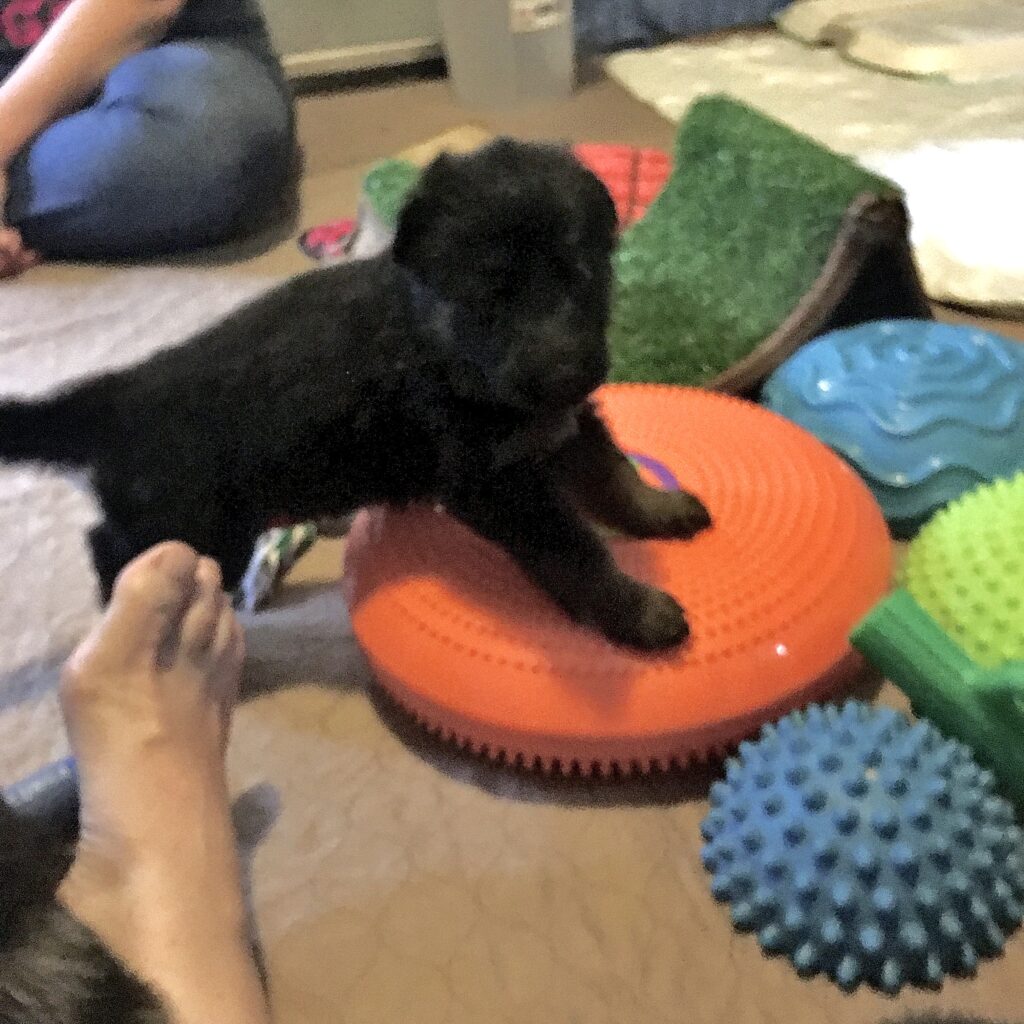
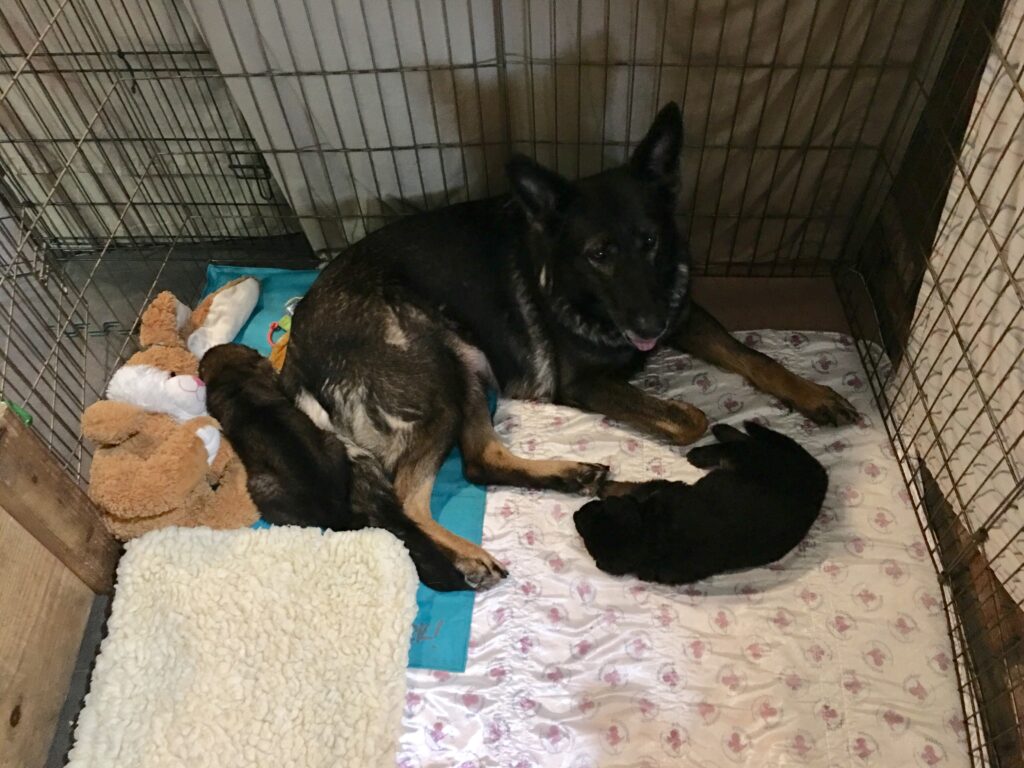
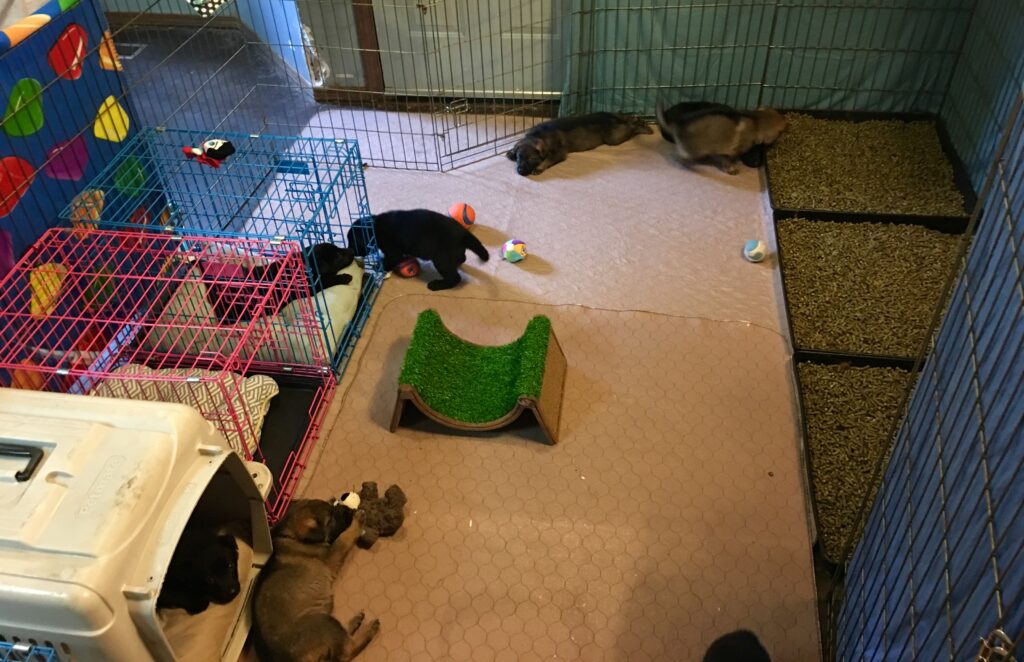
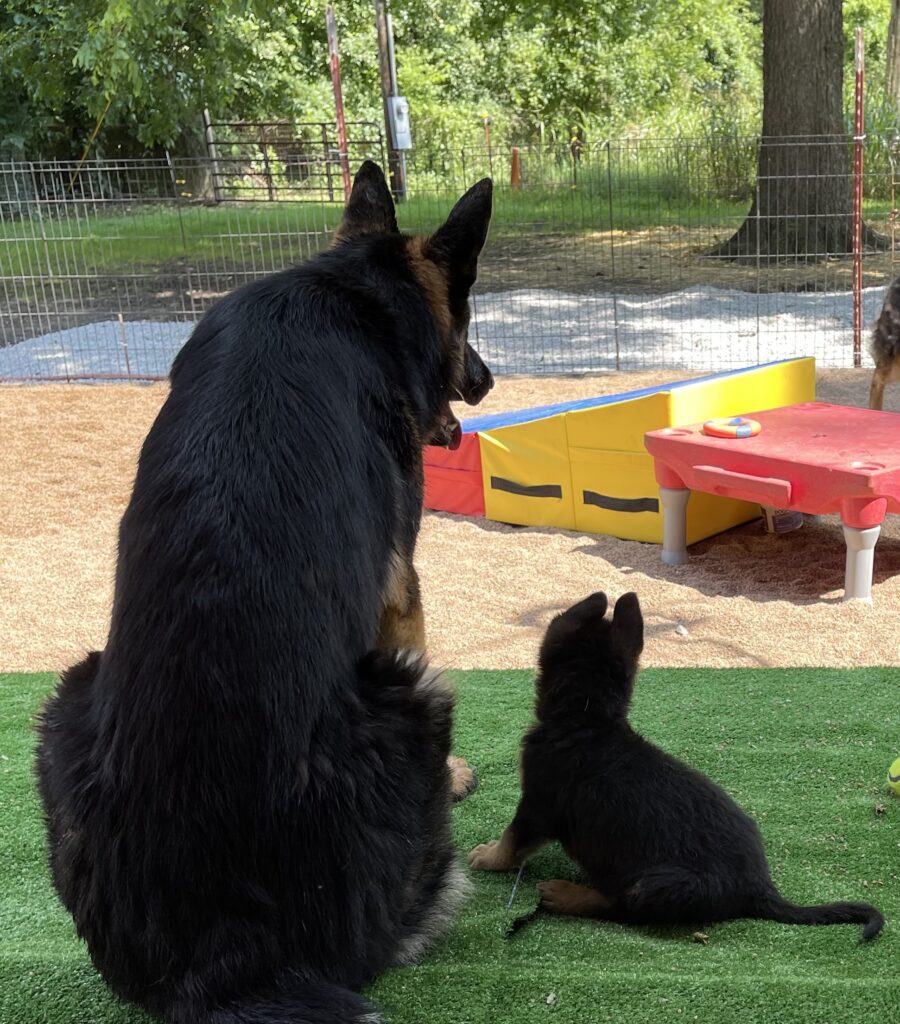
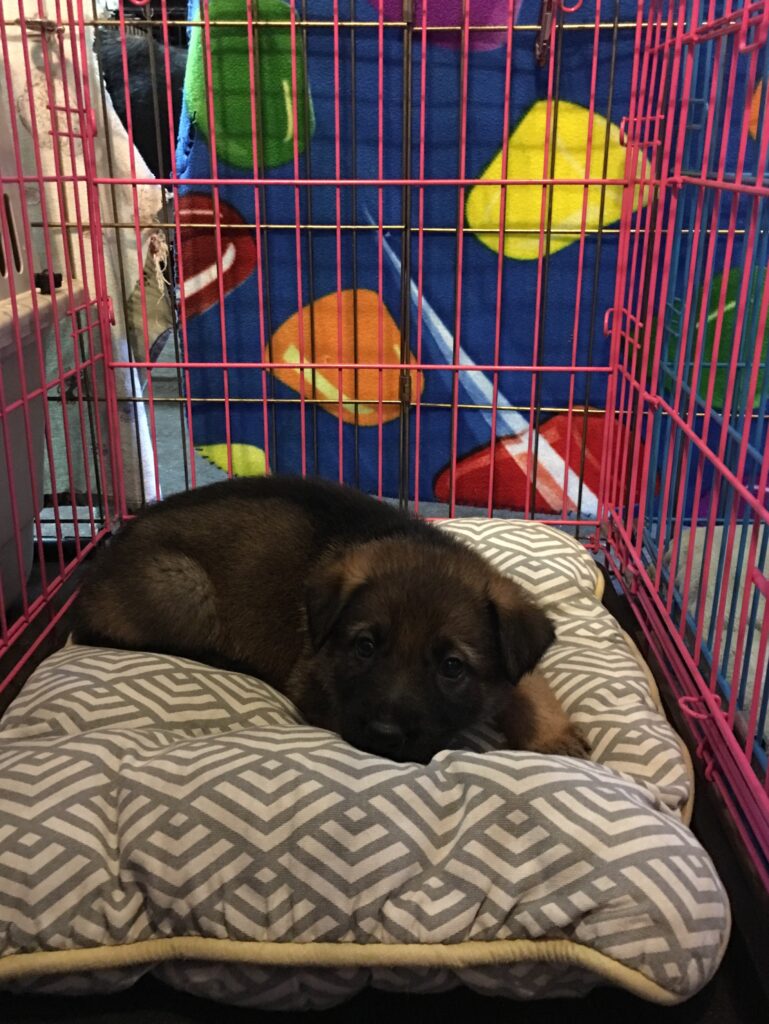
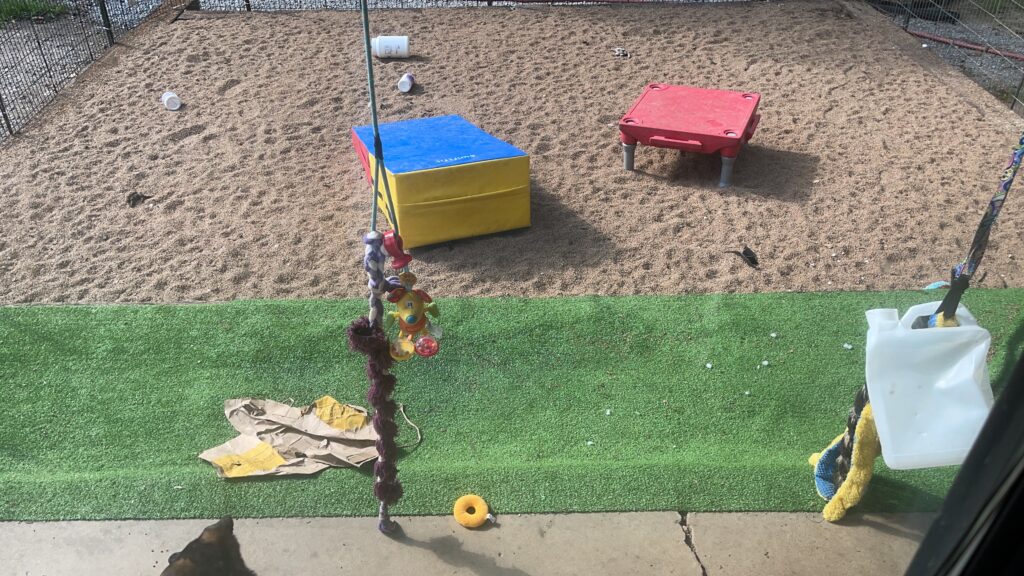
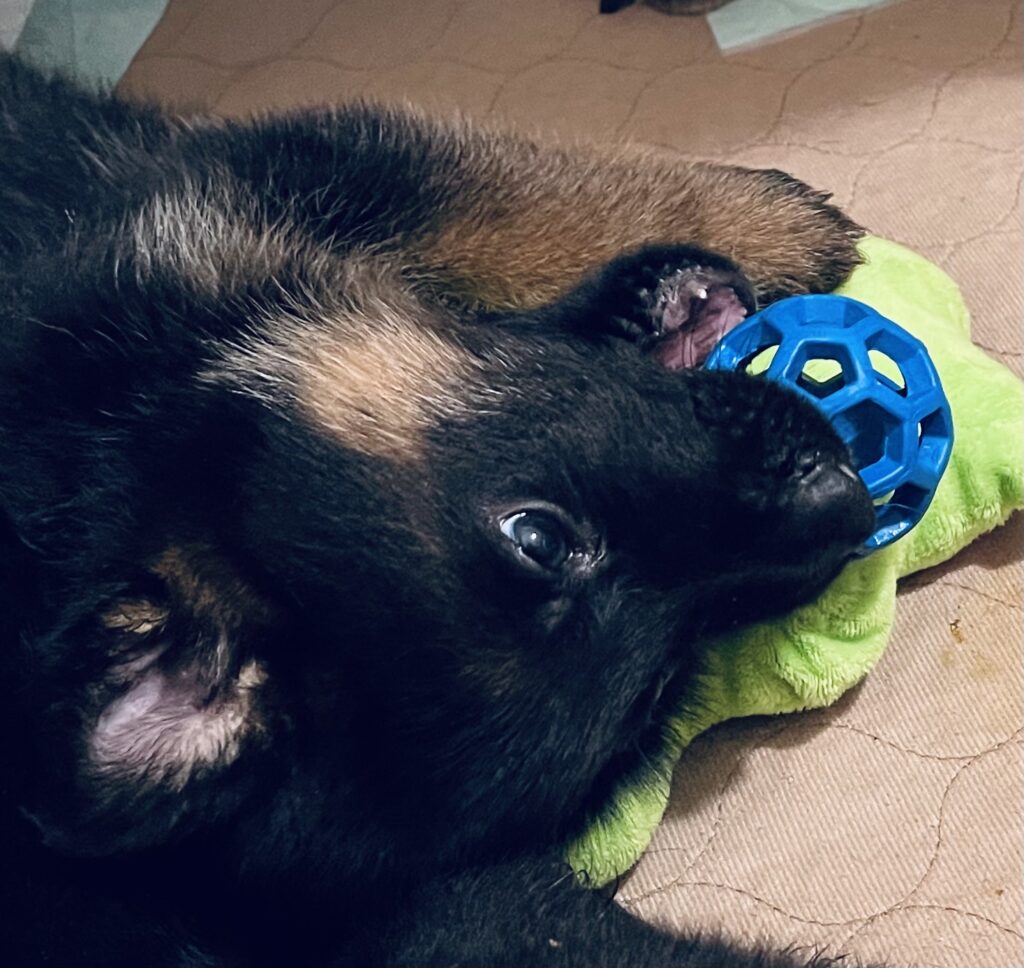
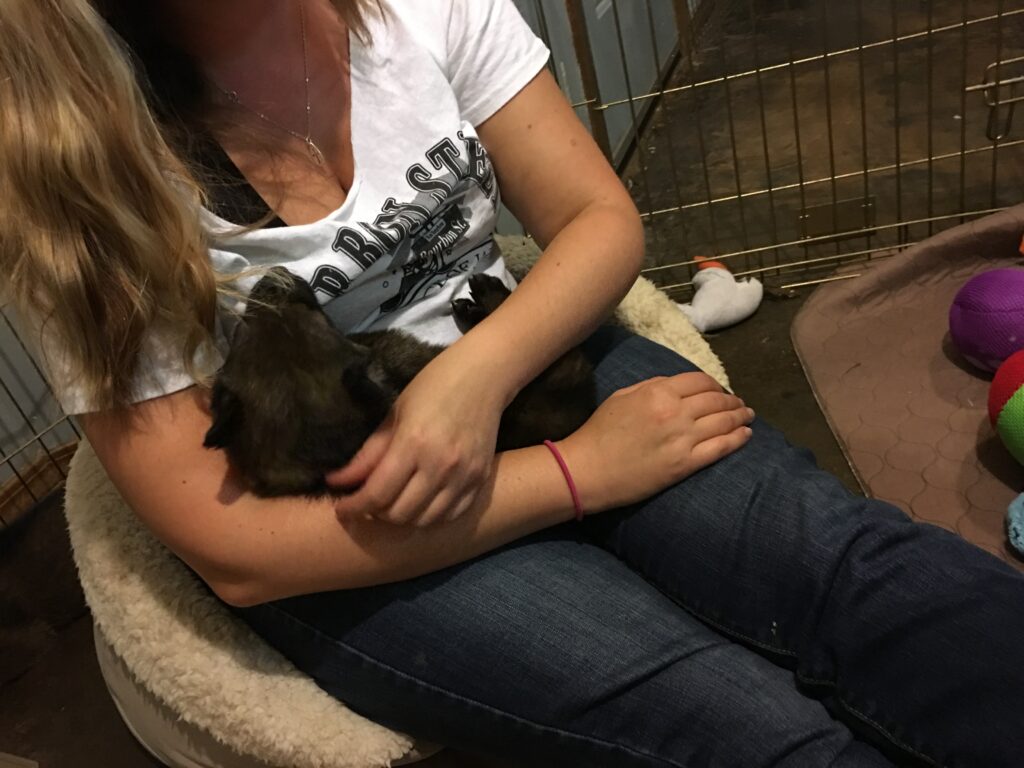
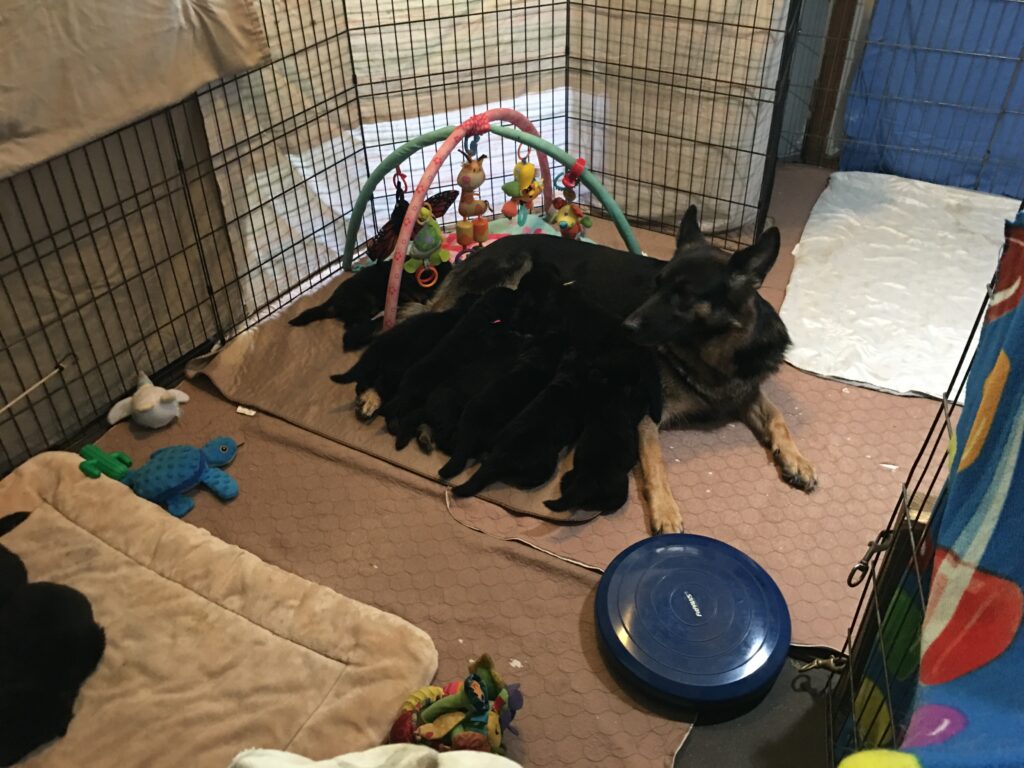
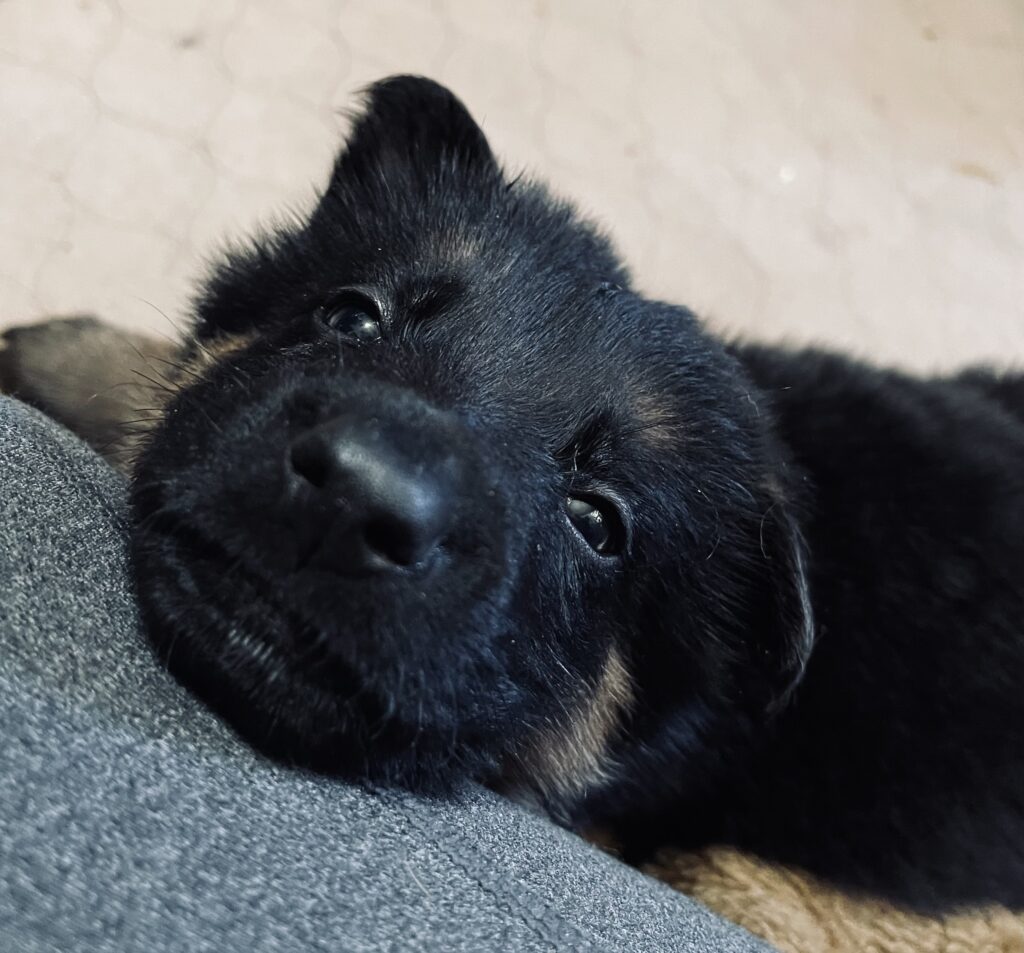
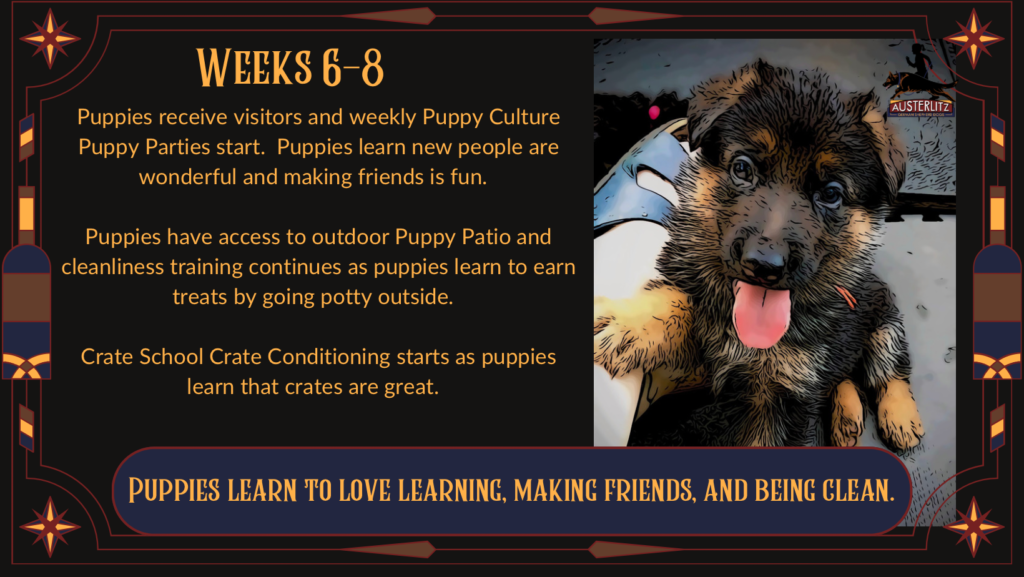
Things get busier and busier as the weeks go by, there is so much puppies need to be exposed to and learn to love, in these first few weeks that benefit them throughout their lives. Putting in this work is our number 1 priority during these formative weeks.
While there is too much to mention, some highlights of our work during weeks 6,7,8 are:
1. Socialization to environments (call the Enrichment Effect), people, and dogs is in high gear. It is not enough that puppies are exposed to things, they must form happy and positive associations with these things to feel confident about them in the future. So we curate our puppies daily lives, showing them exactly what is age appropriate and ensuring they learn only what is beneficial for them, this work is laid out for us in the Puppy Culture protocols.
2. Our Crate Conditioning program is started. This work focuses on creating calm and confident feelings around crates and confinement in a curated and incremental manner. New families receive a complementary enrollment in our crate training course for the new puppy owner.
3. Cleanliness training continues, we will add a litter box to the indoor potty zone and puppies will now have access during the day to the outdoor puppy patio via a doggie door from their pen. This allows our puppies to go outside at will and experience all types of weather, outdoor/road sounds, and of course use the potty outside. The large area also decreases bickering and tension between puppies. Of course all new families will receive complementary enrollment in Poop School: House Training.
4. Sound Conditioning: At weaning we start pairing all types of sounds with playtime, mealtime, and other fun activities this teaches puppies that random sounds are fabulous and mean good things are going to happen. Puppies also have access to the outdoors via the puppy patio and so can habituate to the ambient noises of our location (livestock, wildlife, road noise, human noises, mowers and tractors, etc) and since their puppy corral is in the heart of the house they are also exposed to all the noises of our busy household.
5. Learning to LOVE Learning. While it is not beneficial for puppies to be pushed into learning skills like an adult dog, there is benefit to curated learning of some important life skills, and further as part of the Enrichment Effect we focus on helping puppies learn how to communicate needs to us in a socially acceptable way (Manding), to love to problem solve and seek out novel experiences (Enrichment Seekers) with us and their environment, and how to use their behavior as a path to reinforcement.
